Table of contents
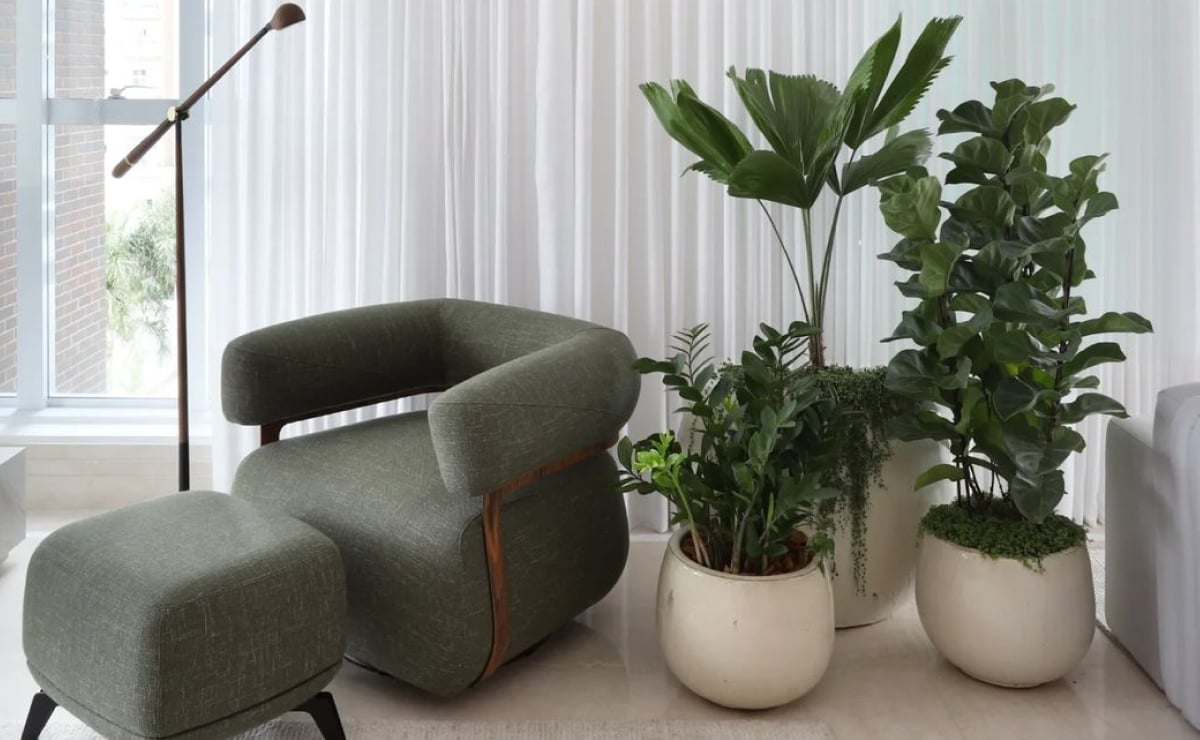
When it comes to decorating, there are many items that make a difference in an environment. Ornamental plants are a great example of this. Adding more beauty and charm to the environment, they also allow a greater contact with nature even indoors.
Ornamental plants are those that can be grown indoors, using pots, various containers, and even in winter gardens, and that stand out because of their flowers, foliage, and various colors.
For the architect Ciça Ferracciú, the ornamental plant is capable of bringing color and decoration, giving more life to the environment: "There are species that not only embellish visually, but also exhale a delicious perfume", she reveals.
What kind of ornamental plant to choose?
Not all plants are indicated for closed environments, since there are species that need natural conditions that are only achieved outdoors, such as many hours of sunlight. Therefore, the architect recommends being attentive to the species chosen for each space, since each one has its own particularity and needs different amounts of water and light.
Check out 14 common types of plants used to decorate the home, indicated by the professional:
1. raffia
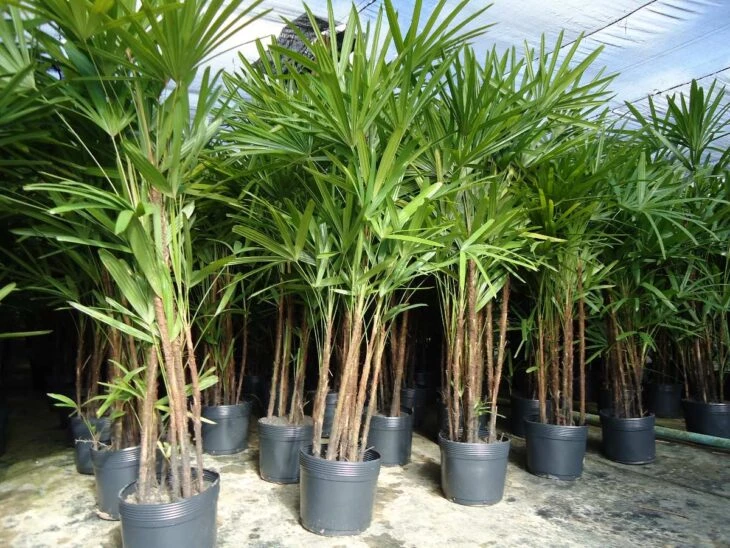
A good option to be used in the living room, raffia is a plant that does not need a lot of light. According to Ciça, the soil must always be humid, but not excessively so, because if there is too much water its leaves start to turn yellow. This plant can reach up to 3 meters high, does not have flowers, and its pruning must be done at the tip of the leaves, making a "v".
2. fern
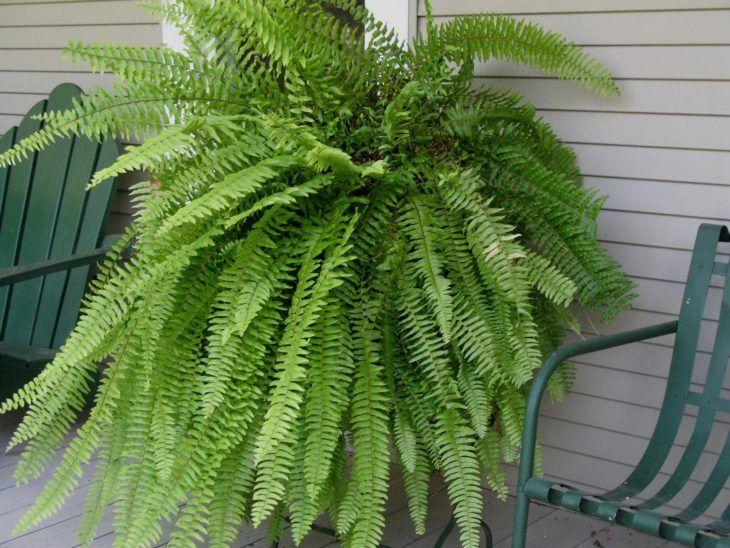
The fern needs moderate and indirect light, must be watered daily, and is another plant indicated for the living room. It doesn't have flowers and its size can vary a lot, reaching up to 1 meter easily. "According to studies, the fern purifies the ambient air", informs the architect.
See_also: 50 decorated princess rooms for you to be enchanted3. succulents
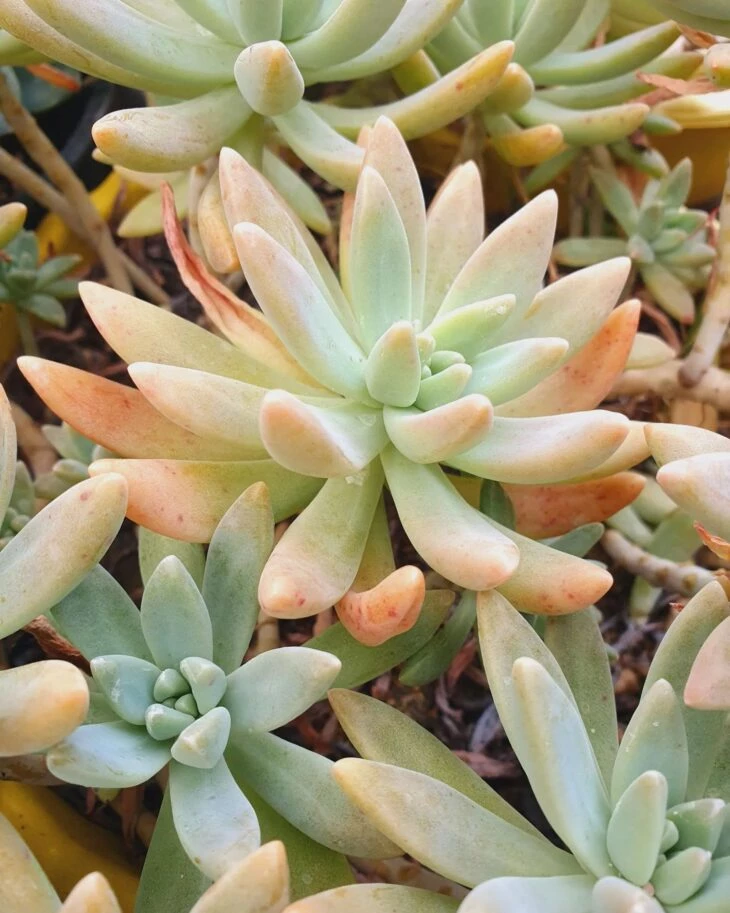
Largely used in living rooms and kitchens, succulents are great to have indoors because they require little care and are very decorative. Most succulent species prefer direct sunlight, but there are also those that like indirect light.
The size can vary according to the species, as can the presence of flowers. "They like little water and, at most, require no more than one watering per week," adds Ciça.
4. orchids
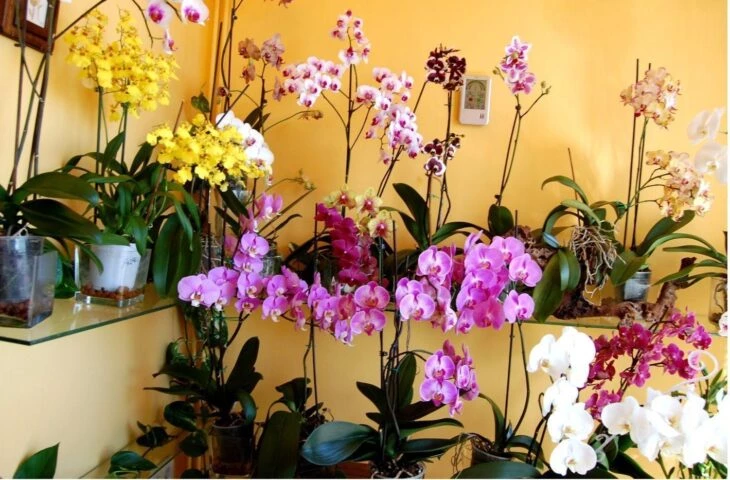
"The orchids like half-shade, and in relation to maintenance, they don't need much water, they can be watered about once a week", Ferracciú informs. Their flowers have varied colors, according to the cultivated species, and the plant can reach up to 60 centimeters high. After flowering, most species flower again, so it is advisable not to throw them away when theirflowers die.
5. basil
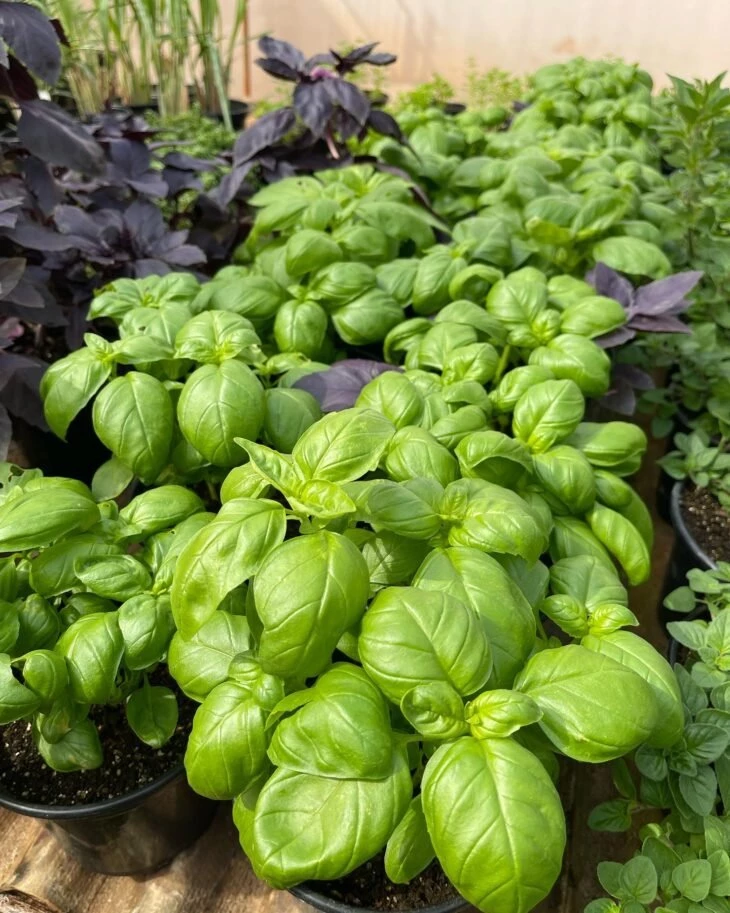
A great option to decorate and perfume the kitchen, basil needs to be grown in an individual pot and reaches about 15 centimeters, "It needs a lot of water - it must be watered whenever the soil is dry, likes indirect light, and does not do well in very cold environments", teaches the architect.
6. chili pepper
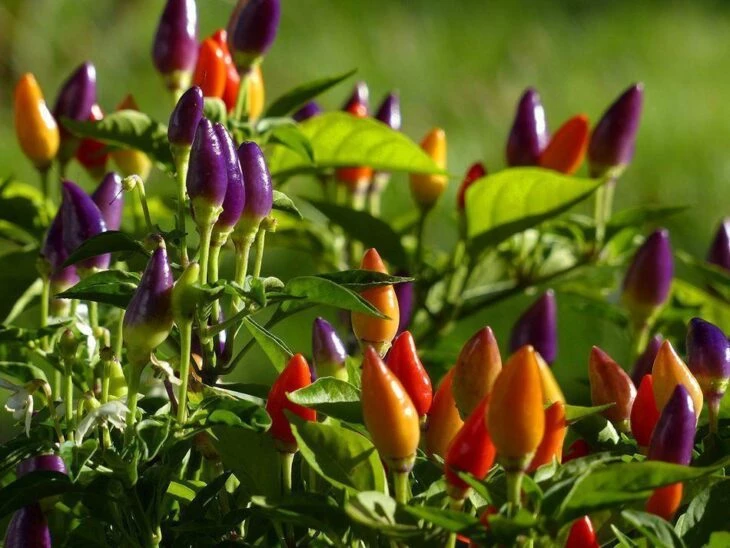
Another frequent plant in kitchens, the pepper plant ranges from 30 centimeters to 2 meters, depending on the species and the pruning done. Regarding maintenance, it is not recommended to wet the leaves, but the soil, so just put water in the vase daily. The presence of flowers varies according to the species cultivated.professional.
7. rosemary
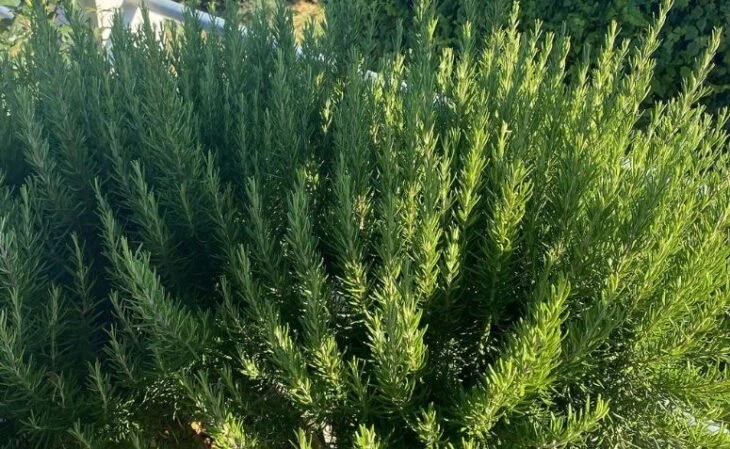
Another constant presence in the kitchen environment, rosemary likes light and needs a few hours of exposure every day. Its watering should be done twice a week and there is the birth of small blue flowers. The architect alerts that it is recommended to put a layer of drainage material at the base of the vase to avoid the accumulation of water - which causes the roots to rot. Watering should bescarce.
8. jasmine
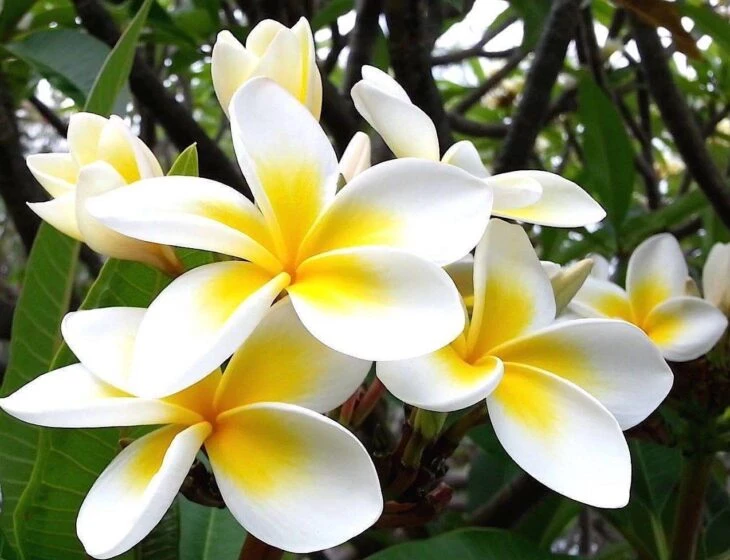
The jasmine is a plant that needs sun and likes warmer places. Widely used in the bedroom for improving sleep quality, the jasmine can be grown in a half-shaded environment, reaches heights of up to 3 meters and produces beautiful flowers in varied colors. It requires watering every day in summer and at least once a week in winter.
See_also: Shades of Blue: Learn how to use the color in your decoration"Jasmine needs special care: weeds can appear and need to be removed quickly to maintain the health and development of the plant," Ciça warns.
9. lavender
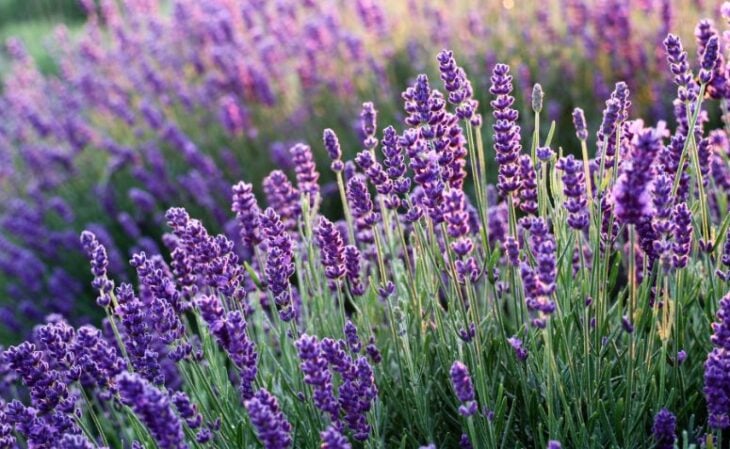
It needs drainage in the pot so it doesn't accumulate water, it doesn't require too much water, and if it is watered more than necessary it can rot", instructs the professional. The soil must be dry between each watering, but the plant must always be hydrated.
The lavender flower, besides being beautiful in shades of lilac, pink, or white, also perfumes the environment.
10. aloe vera
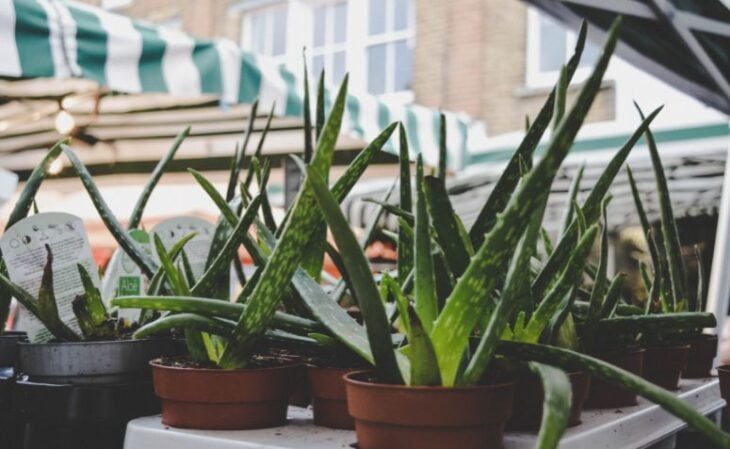
According to the architect, the aloe vera doesn't need much care, it likes a lot of sun exposure and the watering doesn't need to be very frequent, the soil can dry out completely before the next watering - about 15 to 20 days. "Besides being good for sleep, this plant is also healing, has calming properties, purifies the air, and is great for the hair.
Versatile, it can be used in the bedroom, living room, and even in corridors. It reaches up to 3 meters in height and its flowers can be reddish or yellowish, according to the species.
11. violet
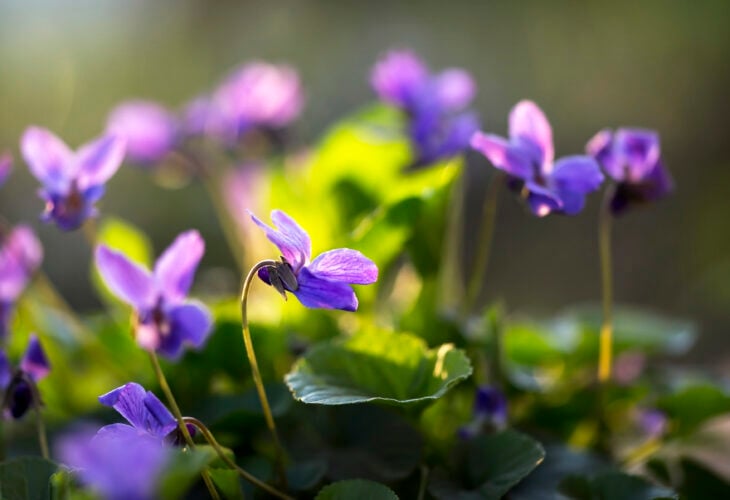
Beautiful and charming, the violet can decorate bathrooms or kitchens, and the ideal is to grow it in a clay pot, which absorbs water and allows the plant's root to breathe. It can't stand direct sunlight and must live in a half-shaded environment. Its watering must occur about once a week and indirectly, through a small dish with water placed under the pot, without touching it.its leaves and flowers.
It can reach about 20 centimeters in height and has flowers of various shades, among them: blue, white, pink, red, purple, and mixed.
12. dwarf sword of St. George
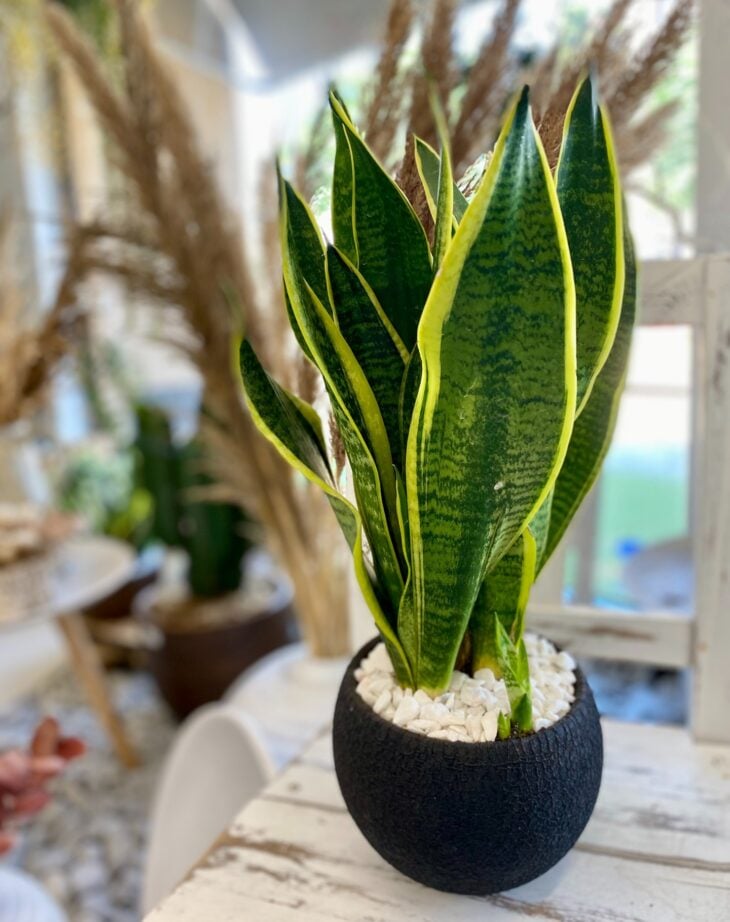
The dwarf sword of St. George is a plant that requires little maintenance and is very beautiful. It can be used in bathrooms, hallways and rooms and, according to the professional, it is believed that it is a plant capable of neutralizing the energies of the environment, eliminating negative energies. It is a plant that likes half shade, but also resists well to direct contact with light, besides having good resistance toIt can also be grown along with other species, reaches heights of 70 to 92 centimeters, and can occasionally flower small yellowish-white flowers.
When placing it in the vase, it is important to add a draining element. This species requires well-spaced watering without excess water, and the soil must be dry before the next watering, which can be done between 20 and 30 days. "It is important to point out that this plant is not a good option for people with pets, because it has toxic substances", he alerts.
13. areca bamboo

The areca bambu is ideal for living rooms and corridors, without direct sunlight. It likes water, but not soggy soil, and should be watered twice a week. "It likes warm and humid weather, so it does not tolerate air conditioning well," stresses Ciça. It can reach 2 meters high and produces small creamy-white flowers.
14. bromeliad
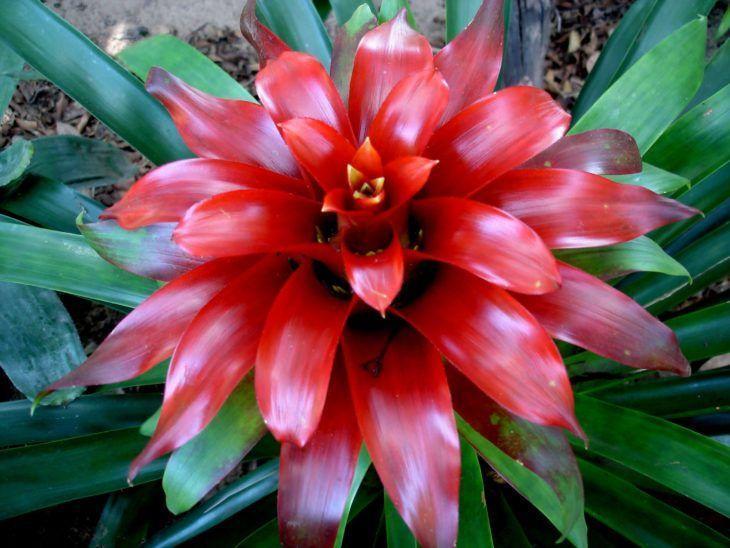
Also indicated for corridors, the bromeliad should receive only indirect lighting and develops well with artificial light. It doesn't need frequent watering, but can be watered every two days. The architect warns about the importance of cleaning the "glass" of the plant after the rule, trying to avoid the proliferation of mosquitoes. It can reach up to 90 centimeters in height and has flowers in shades of red,purple, pink, yellow, depending on the species.
How to grow ornamental plants

Now that you know some ornamental plant species, check out some tips from the professional to help you with your cultivation and decoration:
- If you have pets or children, avoid species that exude toxic substances, such as: meadow grass, glass of milk, azalea, sword of St. George, and lily.
- If you wish to grow plants that do not respond well to direct sunlight in environments where there is direct sunlight, a good tip is to buy a shade cloth and place it so that it covers the perimeter of the plant and protects it, creating the ideal situation for that plant.
- A good tip is to create a
- If you have a very noisy balcony, taller plants can serve as a sound barrier, making the balcony more pleasant. The same measure can be used in order to guarantee more privacy. In a project of a balcony with a lot of space, elaborate plant curtains with columbias, orchids, and climbers can look amazing.
- If you like to cook, grow herbs and plant a garden at home. They decorate, perfume, and can be used in the kitchen. An important tip is to research the species, since not all of them can be planted in the same pot.
- A very nice idea to bring green into the decoration is to put ferns next to decorative objects on the bookshelves. It gives life to the environment in a super different way than the traditional flower arrangement. Living pictures are also great ways to decorate.
- Finally, always, before buying the plant, consult a professional to combine beauty and practicality. Look for species that fit into your routine - if you are never at home, opt for plants that are easy to maintain, for example. The ornamental plant has as its main objective the cultivation of beauty, the ornamentation of the environment, but keep in mind that a beautiful plant is a healthy plant.
60+ room inspirations with ornamental plants
Still unsure about how to use ornamental plants in your home decor? Then check out the 68 rooms adorned with this item and choose your favorite:
1. dwarf St. George Sword adding charm to the living room flower box
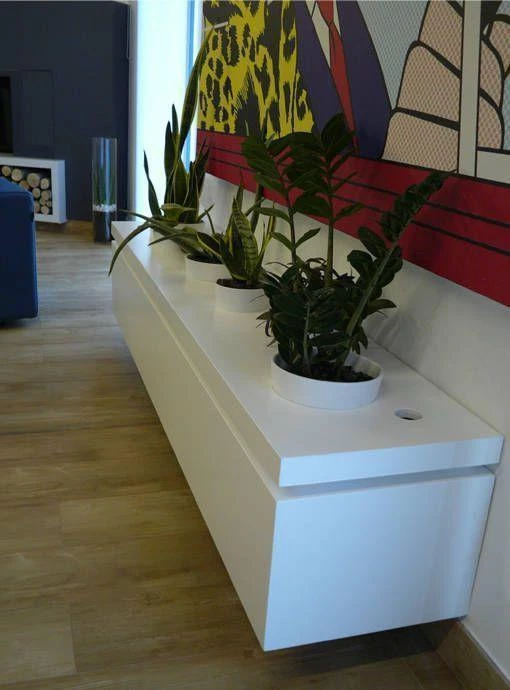
2. bamboo sands integrating living room and kitchen
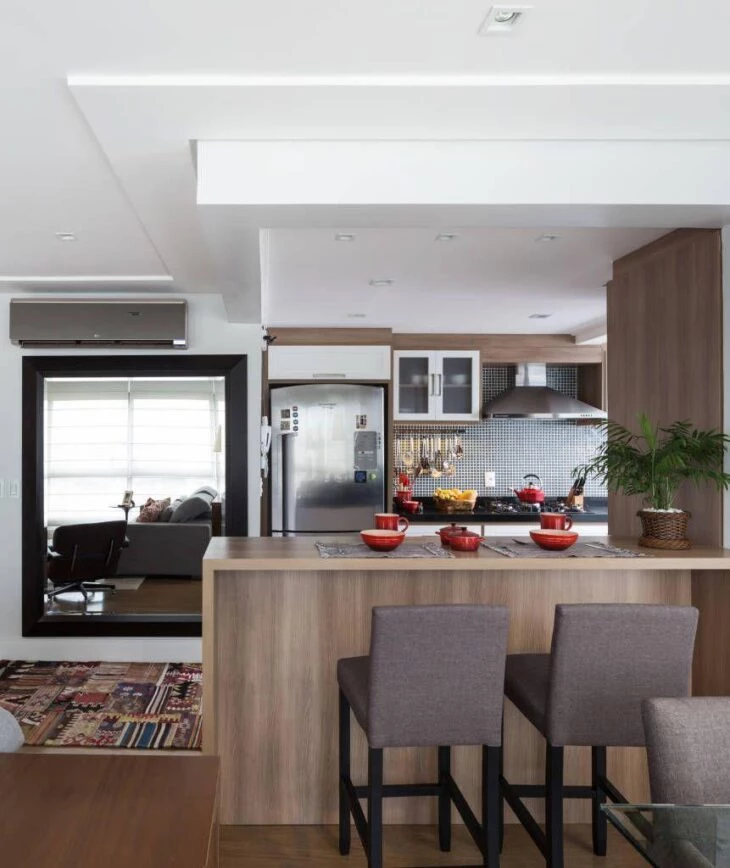
3. vivid fern painting bringing elegance to the environment
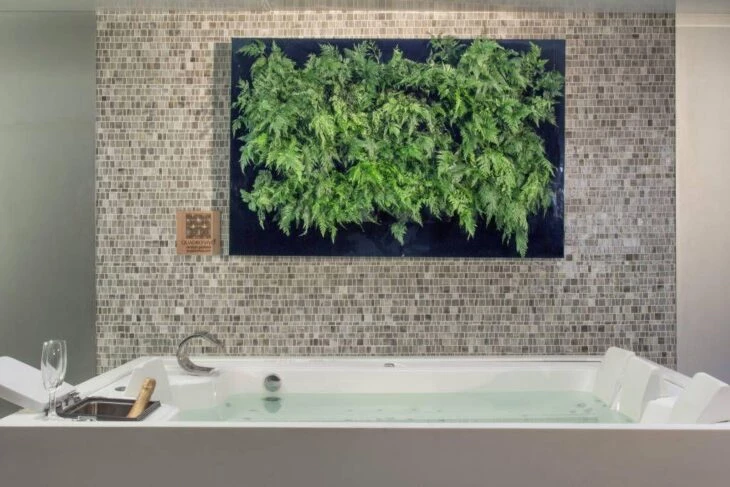
4. deer antler bringing charm to coffee table
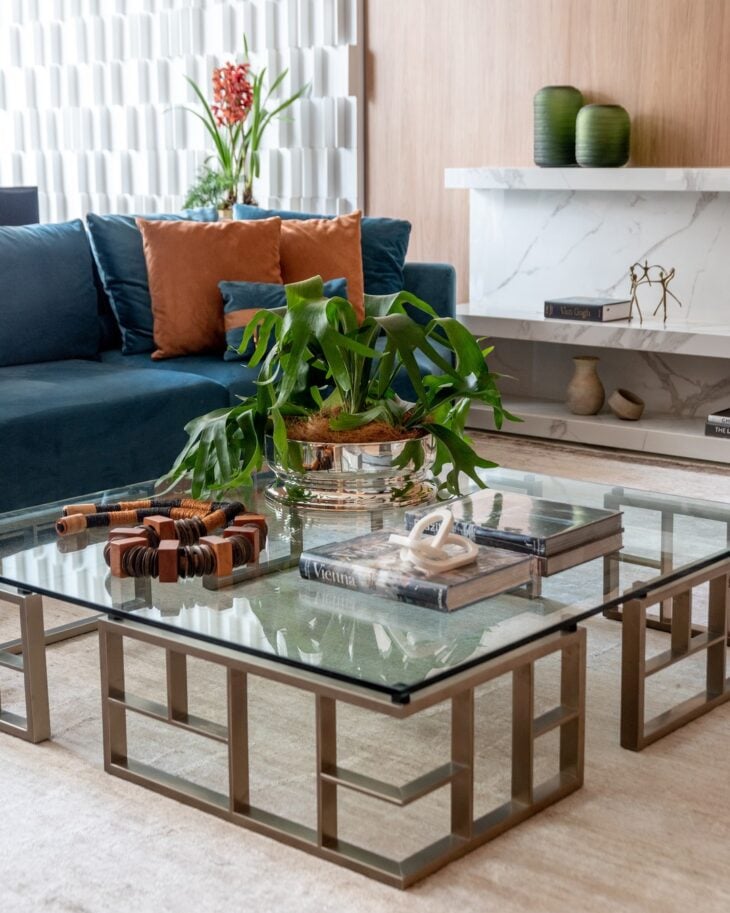
5. white orchid gives delicacy to the environment
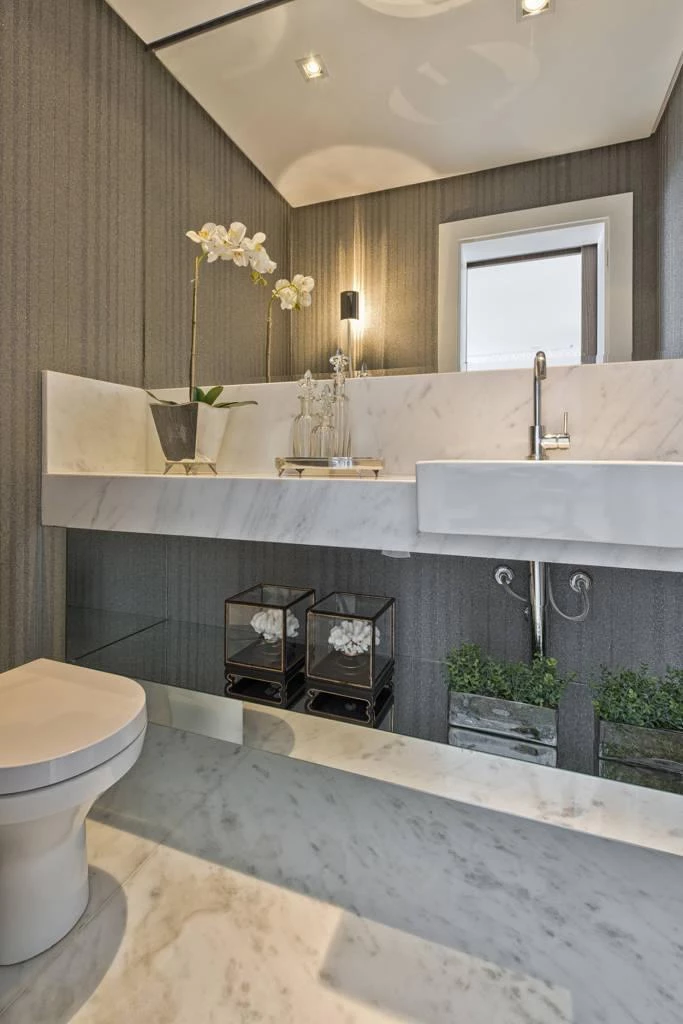
6. raffia welcomes you in the foyer
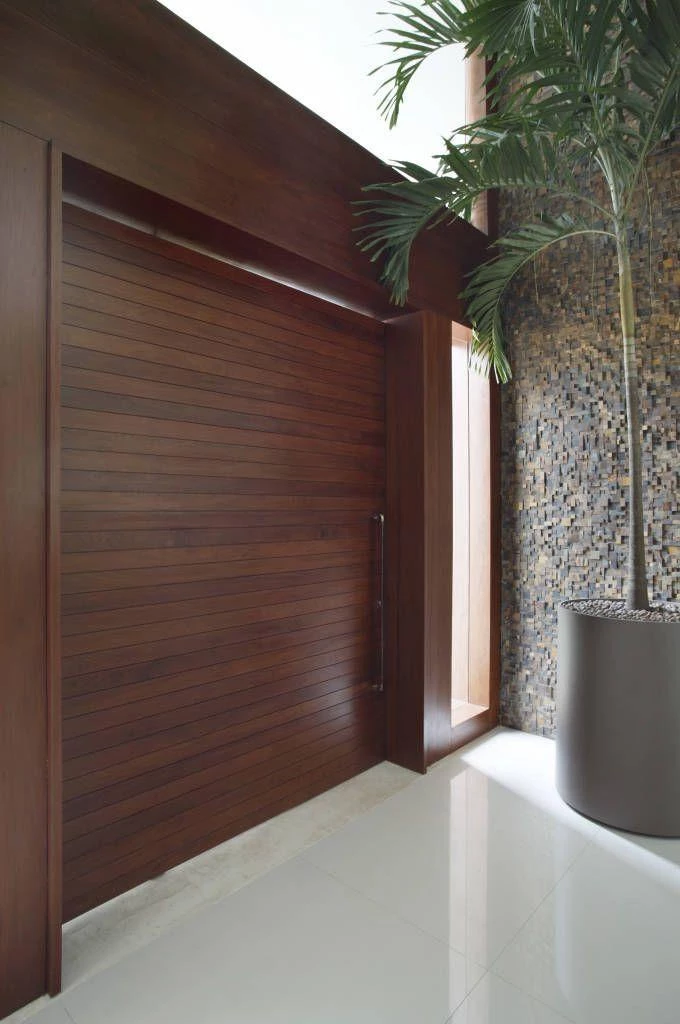
7. a living wall of fern on the balcony ensures greenery in the space
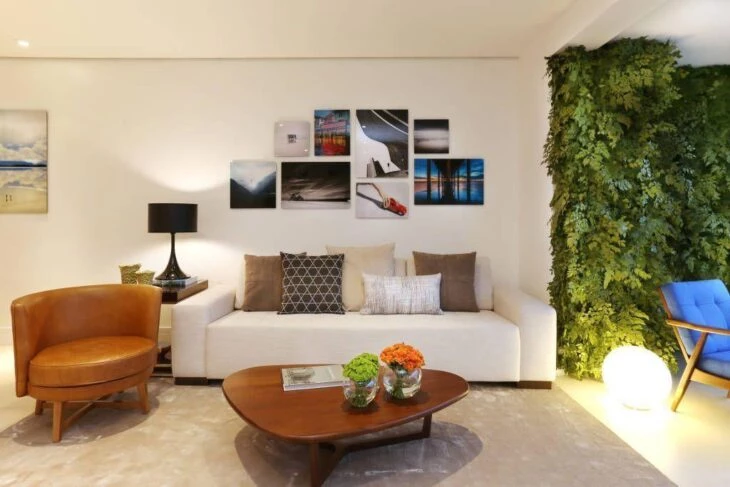
8. orchids in the bathroom make the environment more cheerful
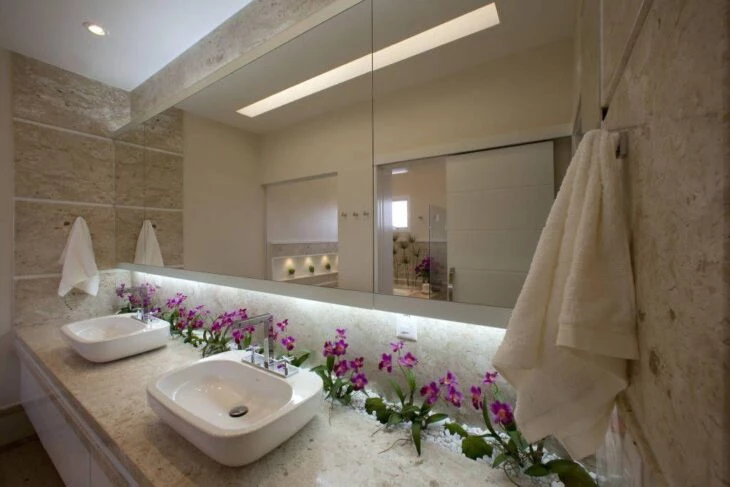
9. different species of ferns decorate the bookshelf
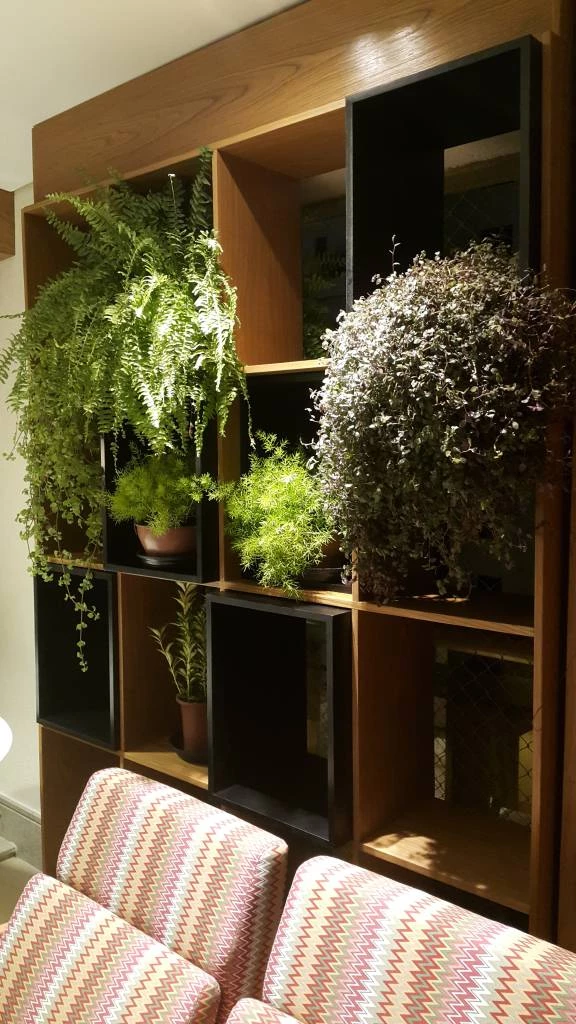
10. raffia and vegetable garden making the veranda more beautiful
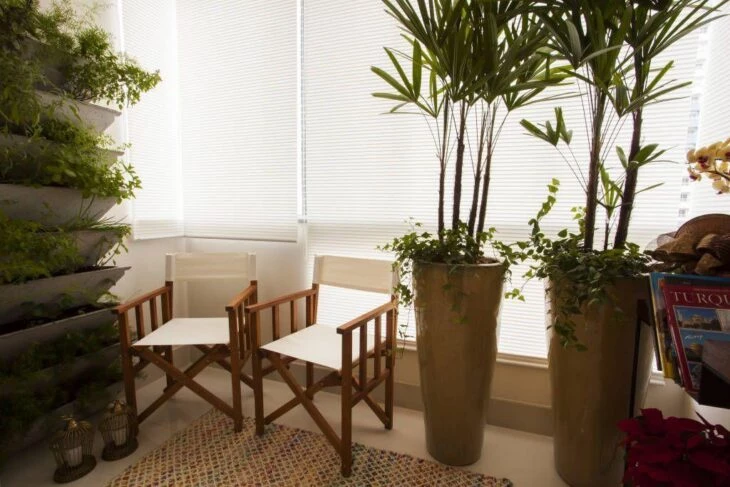
11. succulents adding contrast to the coffee table
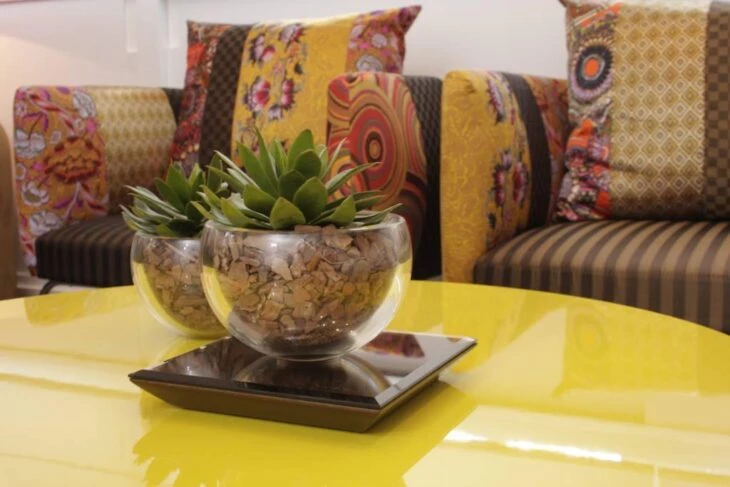
12. raffia embellishing the hall with mirror vase
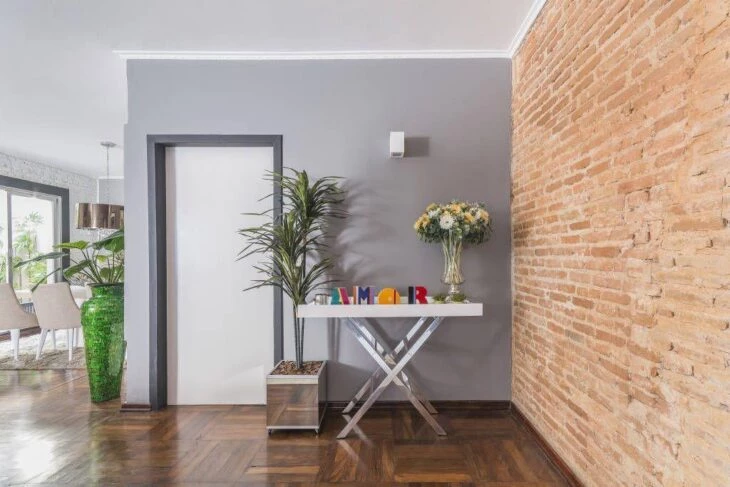
13. rosemary perfuming the kitchen
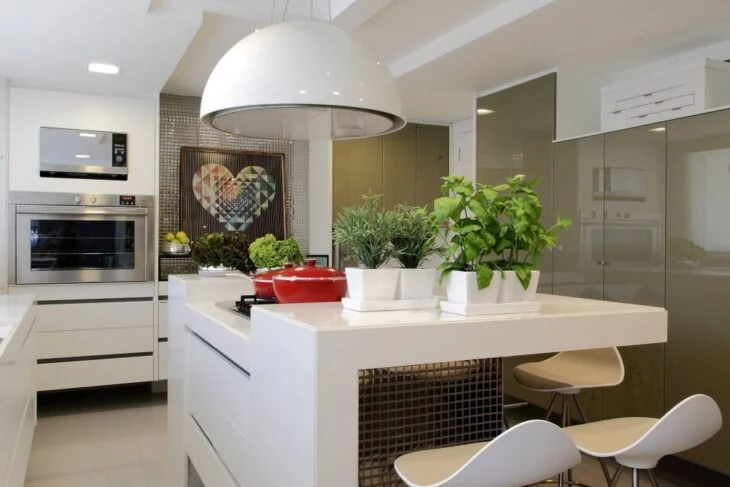
14. dwarf St. George sword in the home office
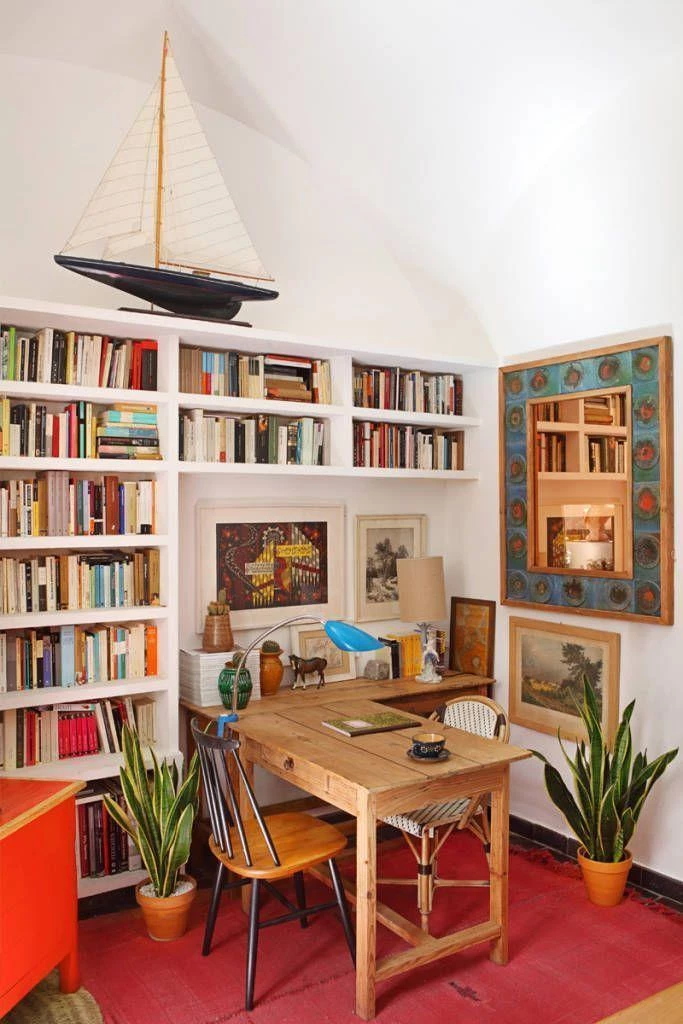
15. ferns breaking the monotony of black and white
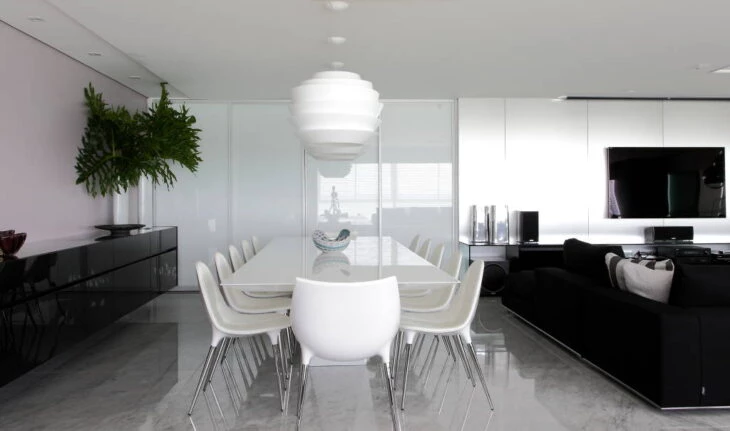
16. sword of St. George contrasting with the corridor's carpet
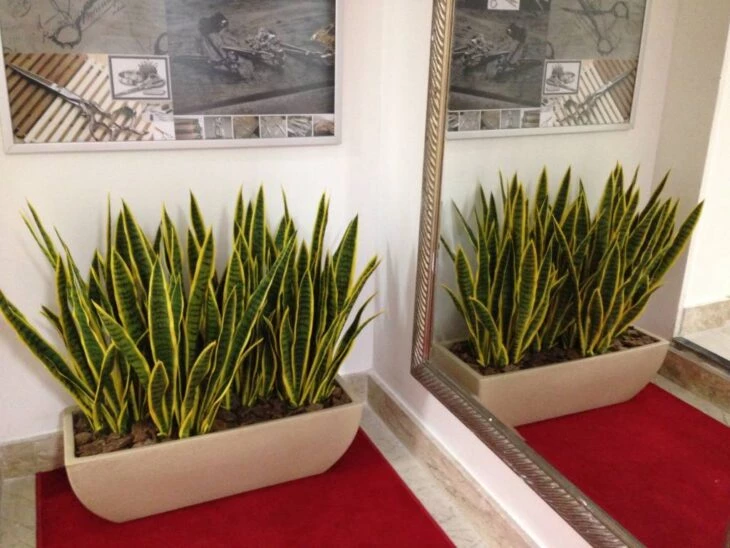
17. integrated kitchen with ferns and mini vegetable garden
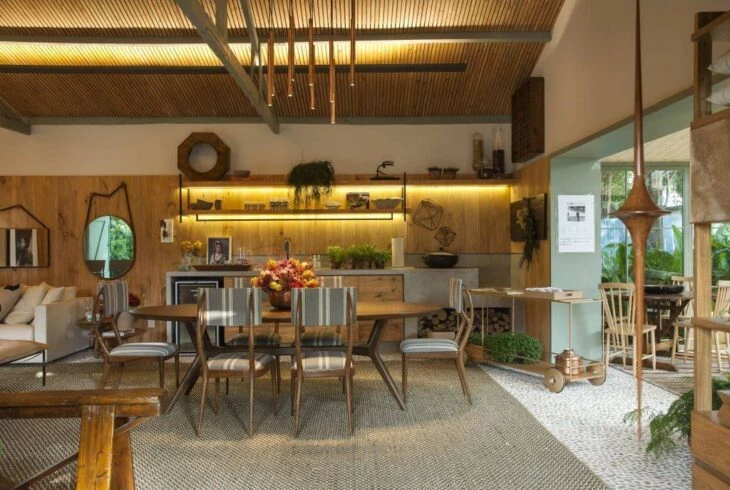
18. pepper pot to liven up the kitchen garden
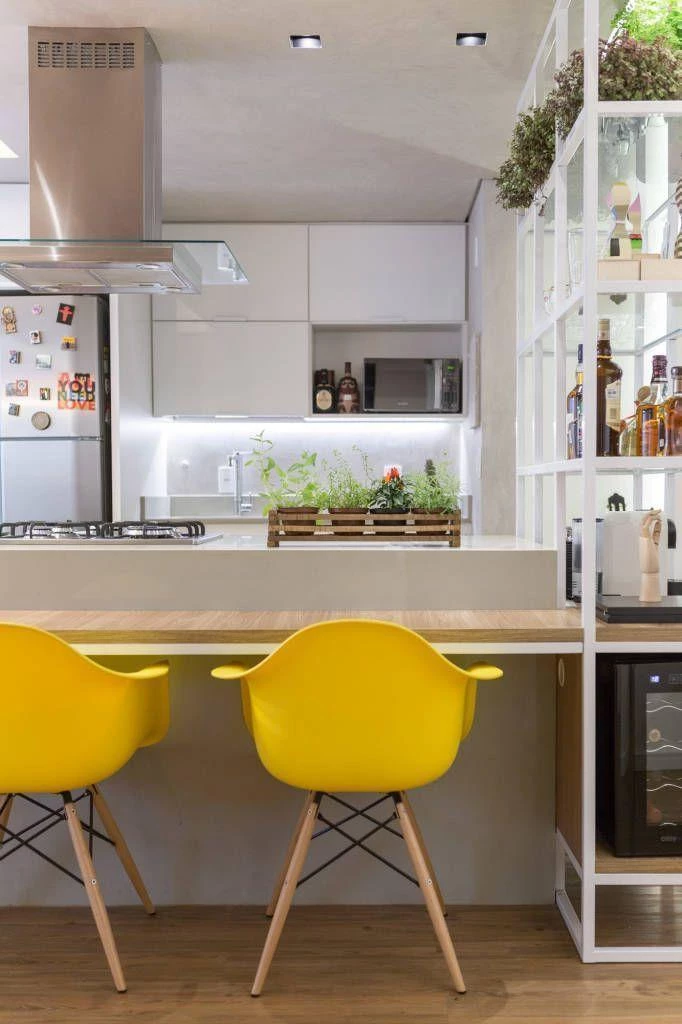
19. raffia adding charm to the integrated living
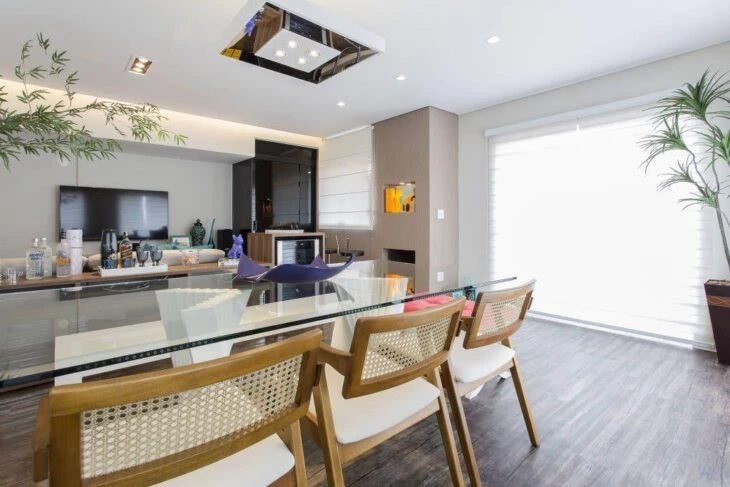
20. to decorate the circular staircase, St. George's Sword
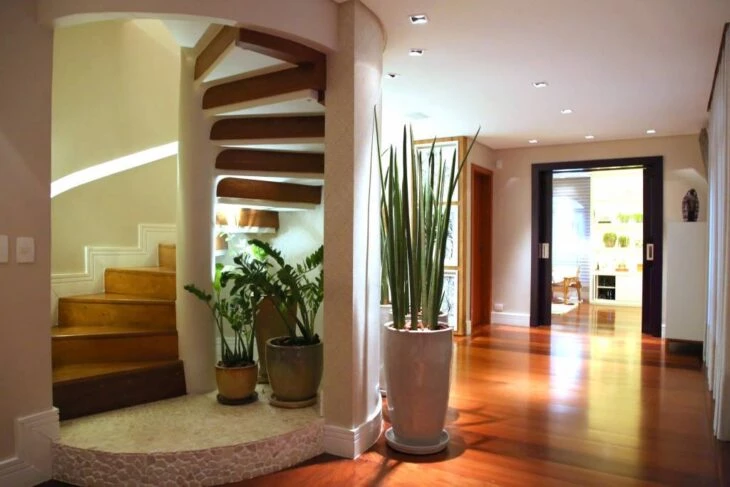
21. white orchid bringing softness to the rustic environment
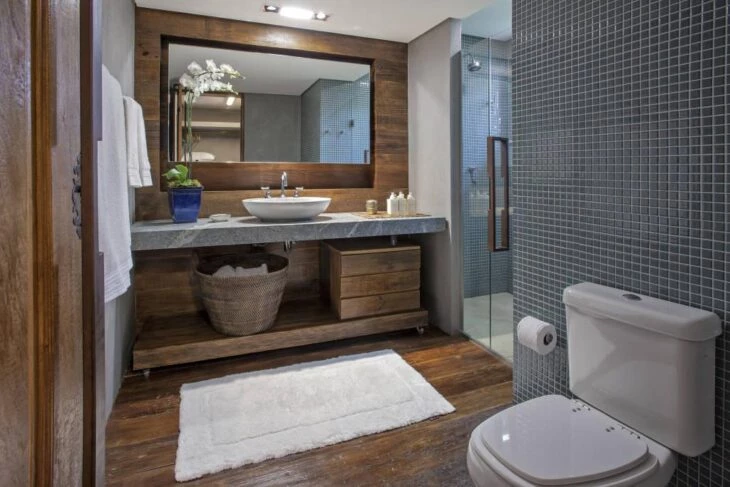
22. here the washing makes the home office more perfumed and beautiful
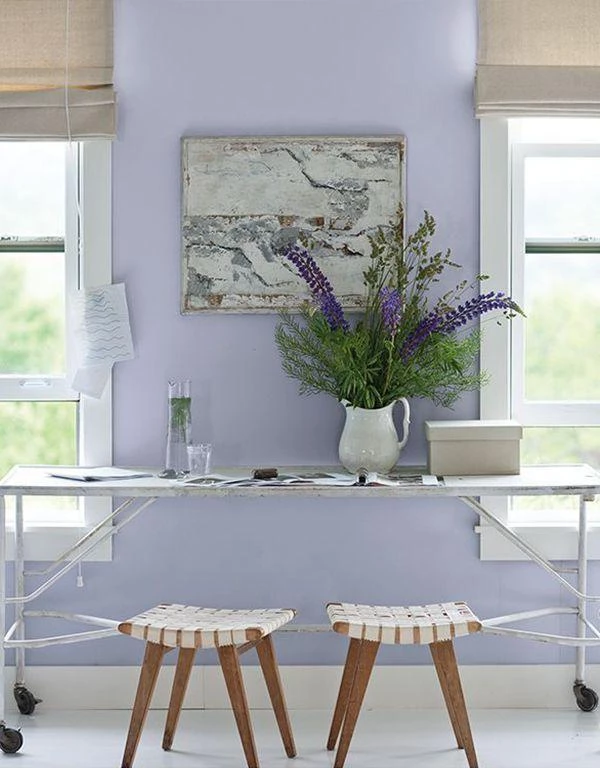
23. how cool is this wall
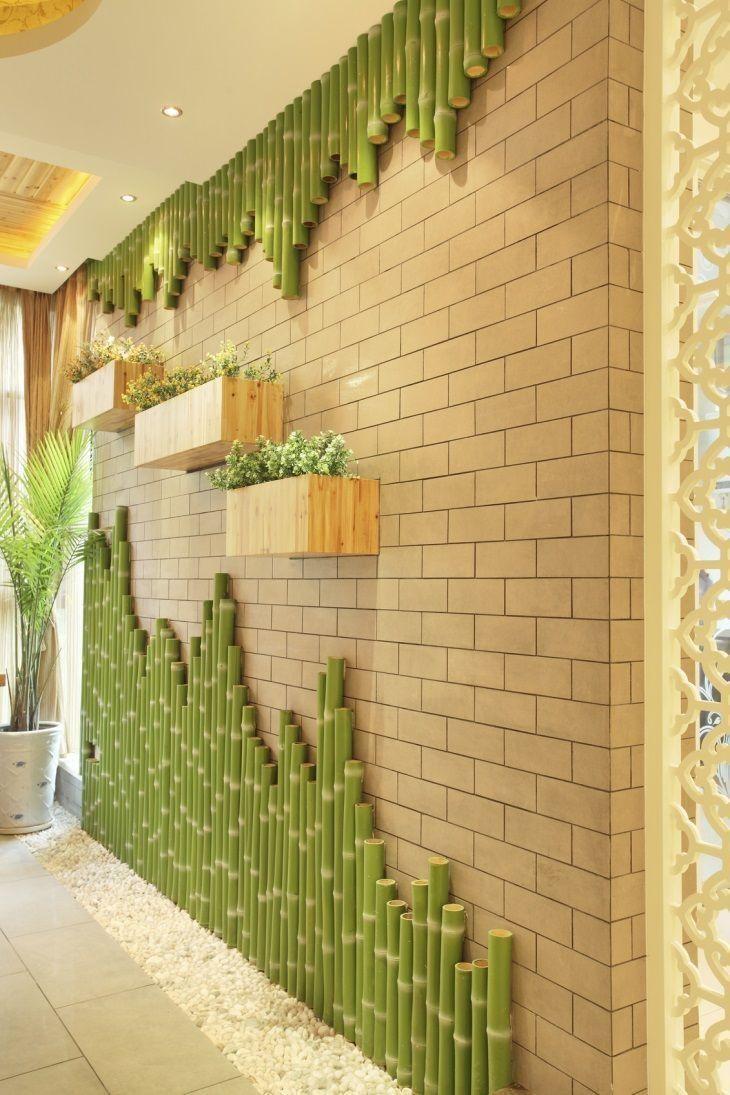
24. bromeliad brightening the dining table
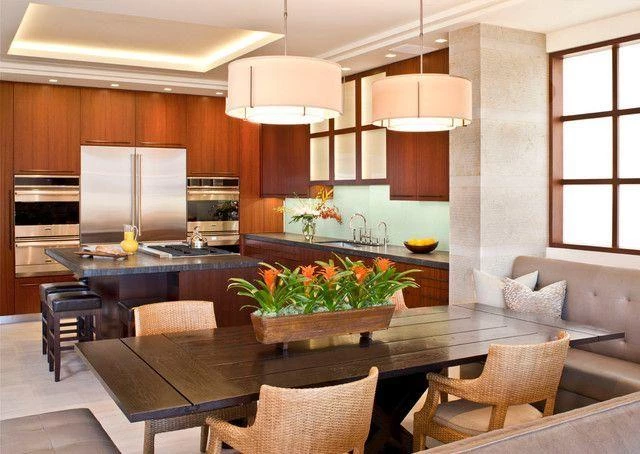
25 - Always in the corner, illuminating the environment
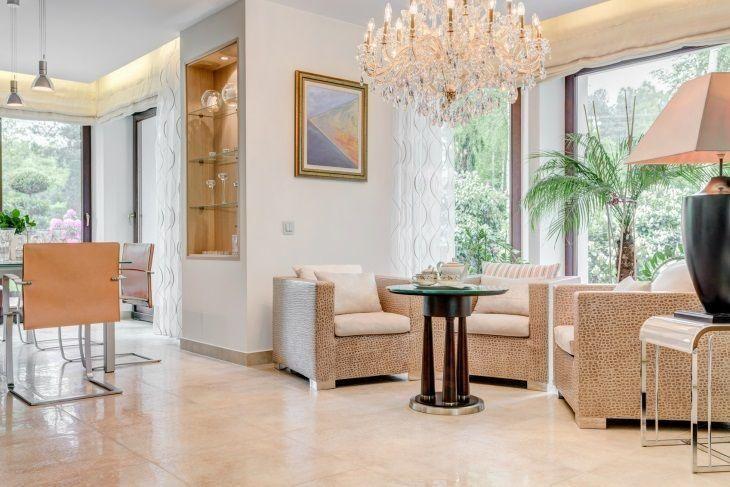
26. orange bromeliad centerpiece
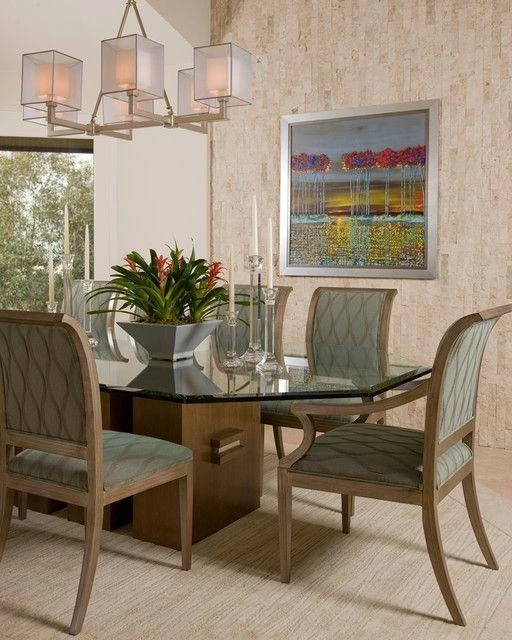
27. aloe vera making meals more beautiful
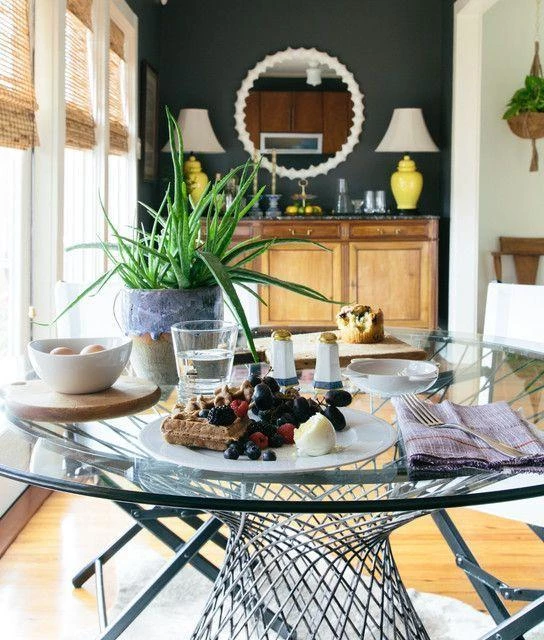
28. succulents brightening up the living room hack
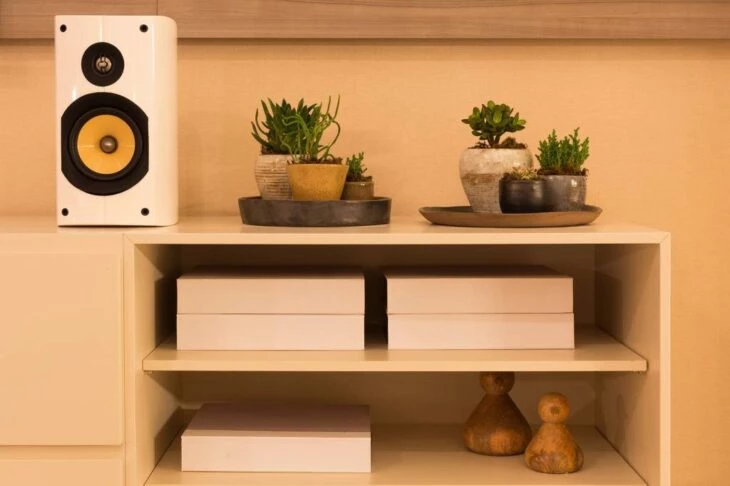
29. bathroom adorned with aloe
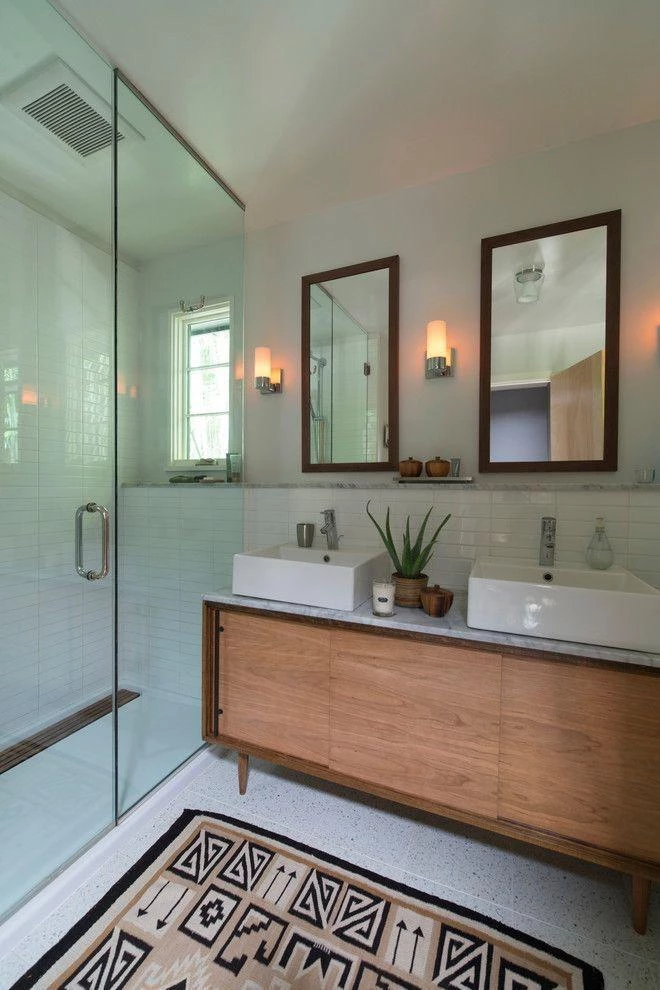
30. raffia decorating the feet of the stairs
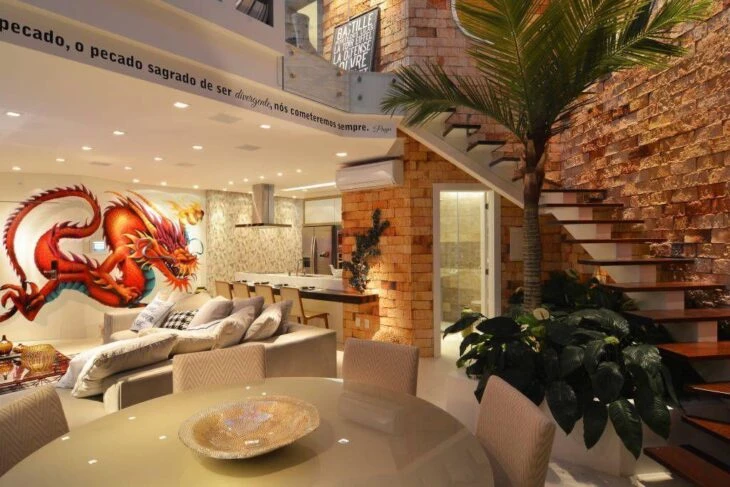
31. lilies bringing elegance to the room
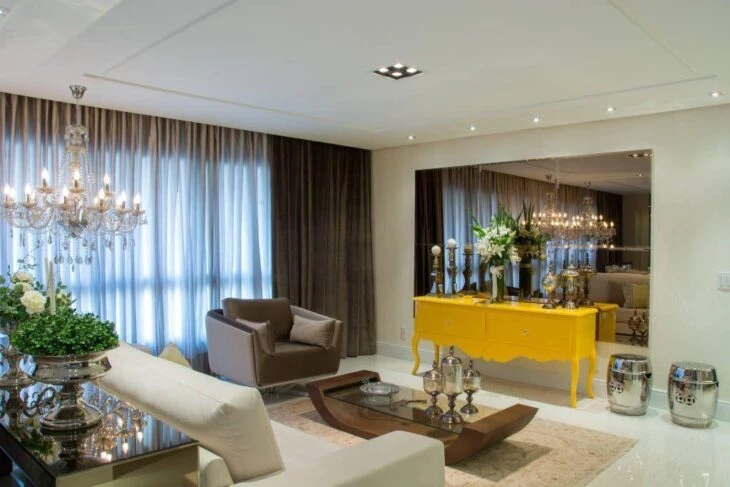
32. buchinho guaranteeing green in the single room
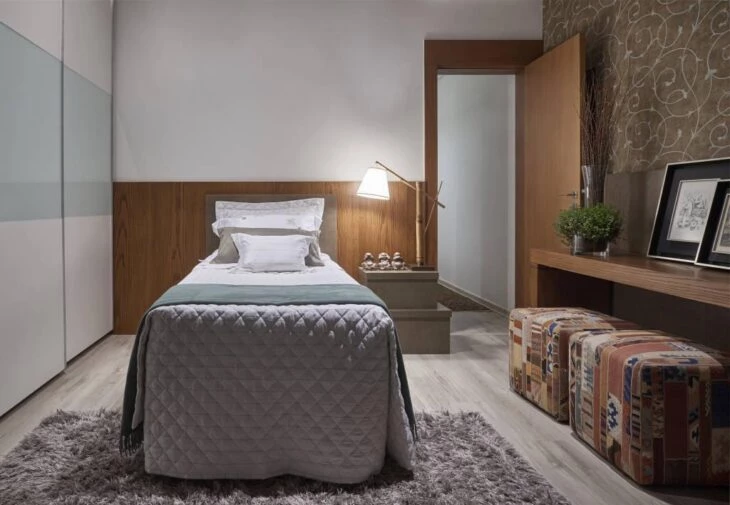
33. sword of St. George complements the modern room
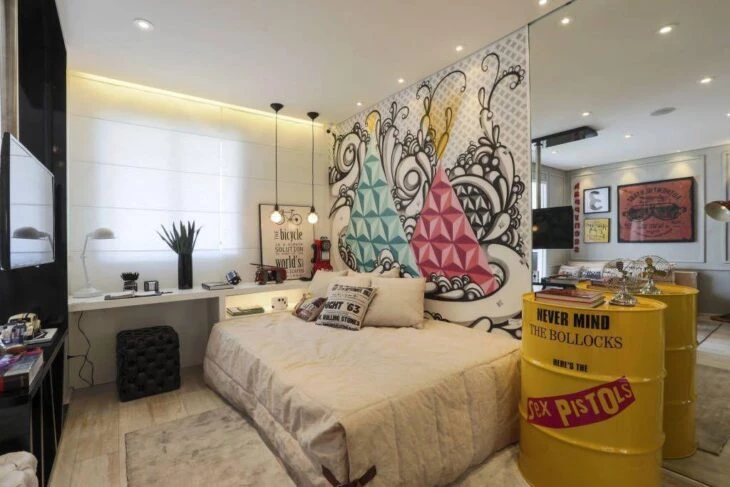
34. raffia complements the bold bedroom look
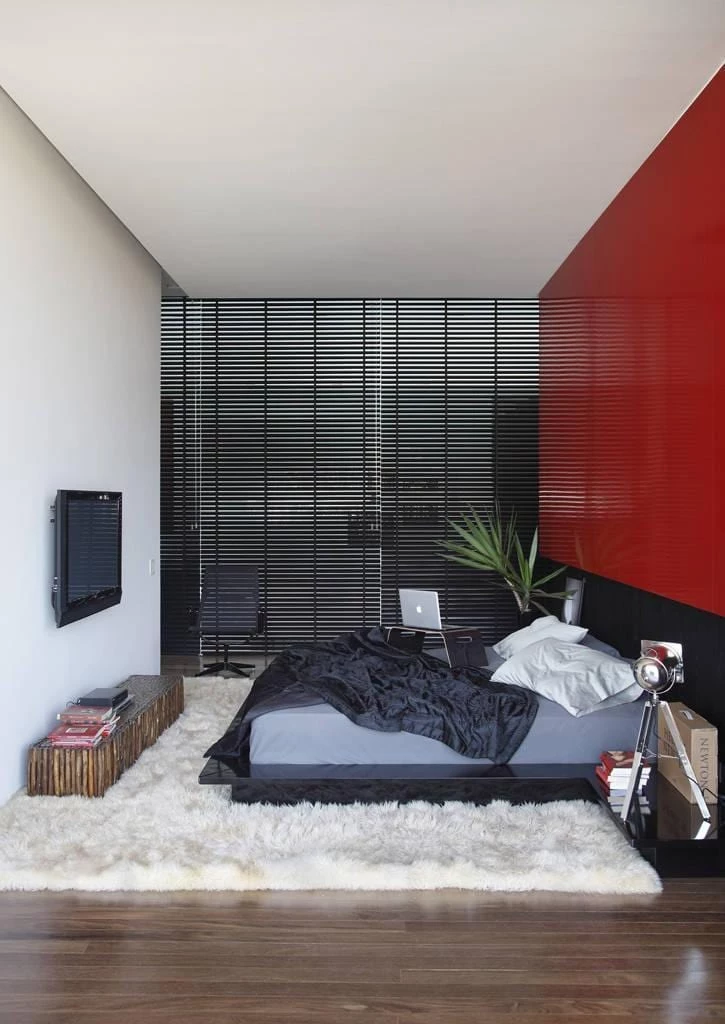
35. milk glass and fern to complete the look of the integrated kitchen
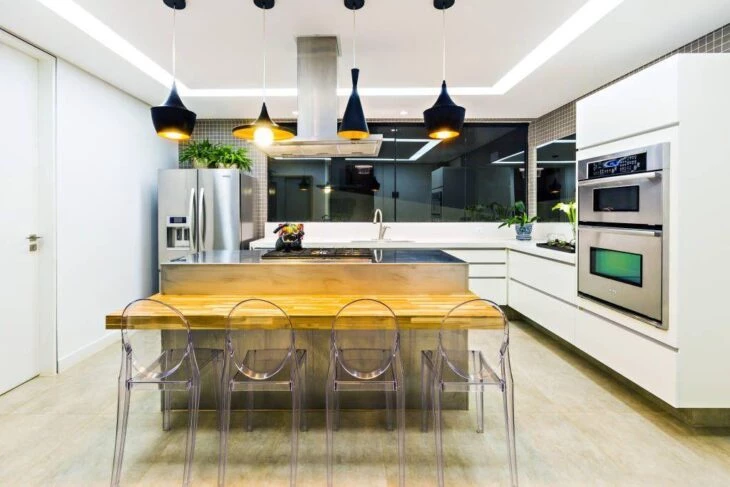
36. bushes and sword of St. George adding green to the room
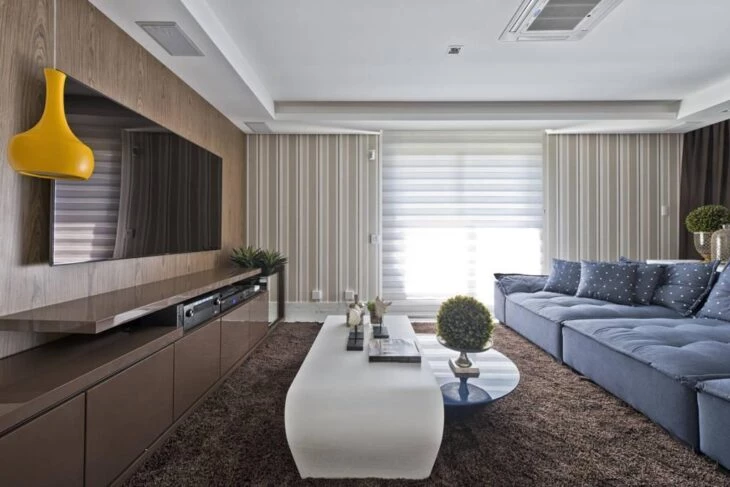
37. orchids making the environment cleaner
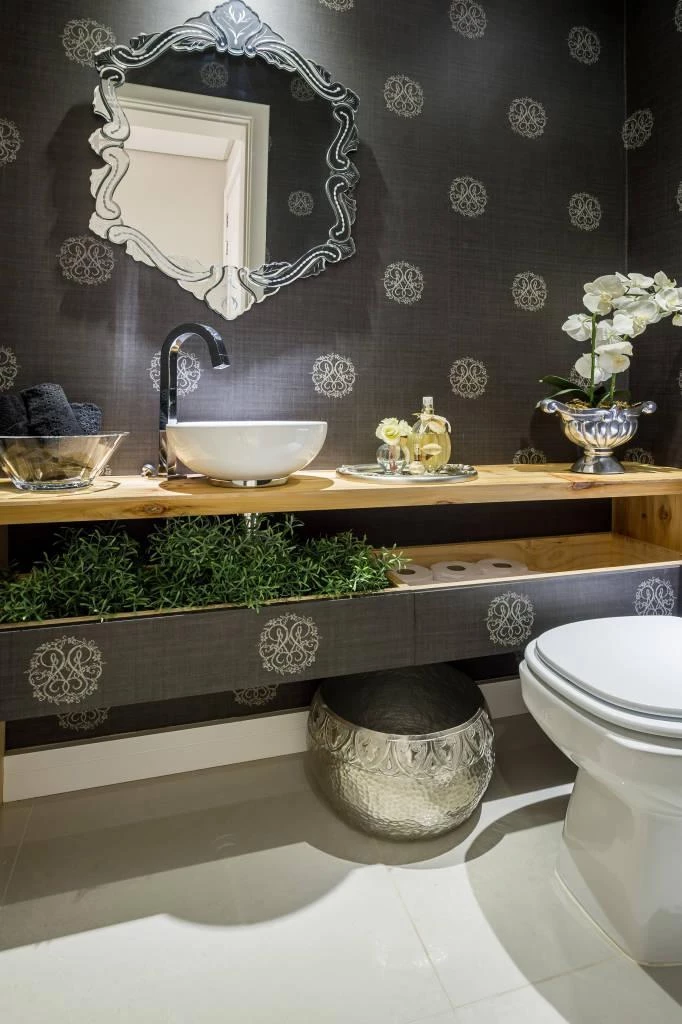
38. stately coconut trees guarding the entrance to the home
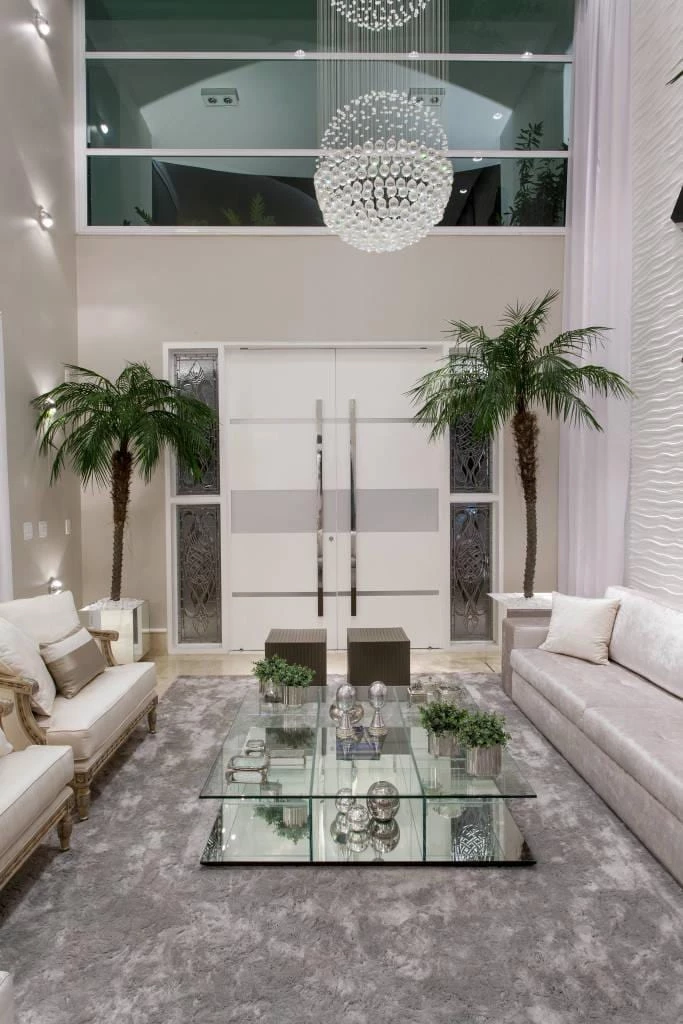
39 - The TV room becomes more elegant
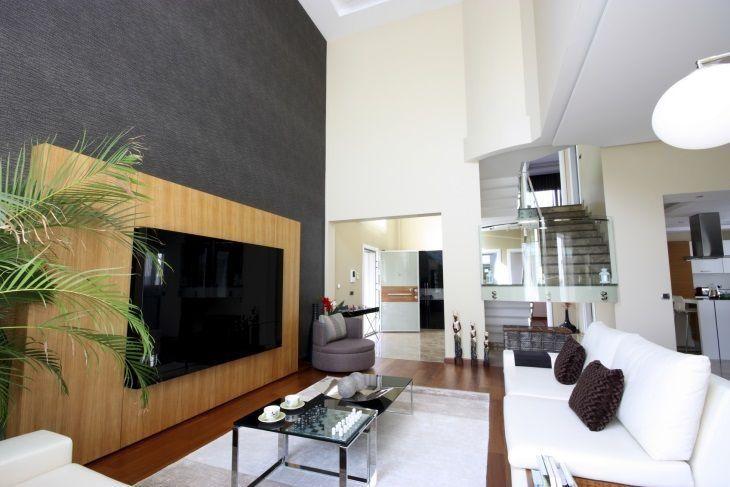
40. an eye-catching composition
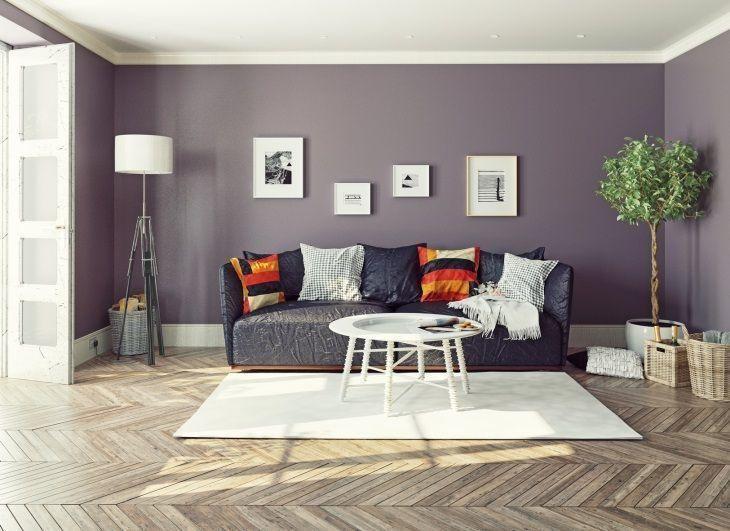
41. a bonsai in the bedroom adds charm to the environment
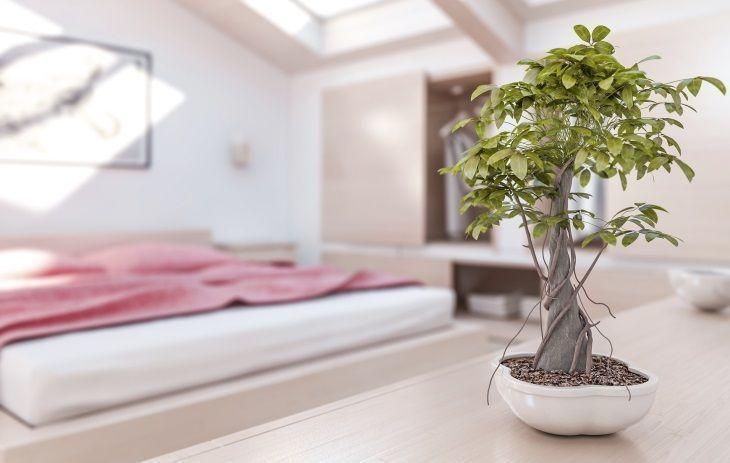
42. a more colorful lavabo
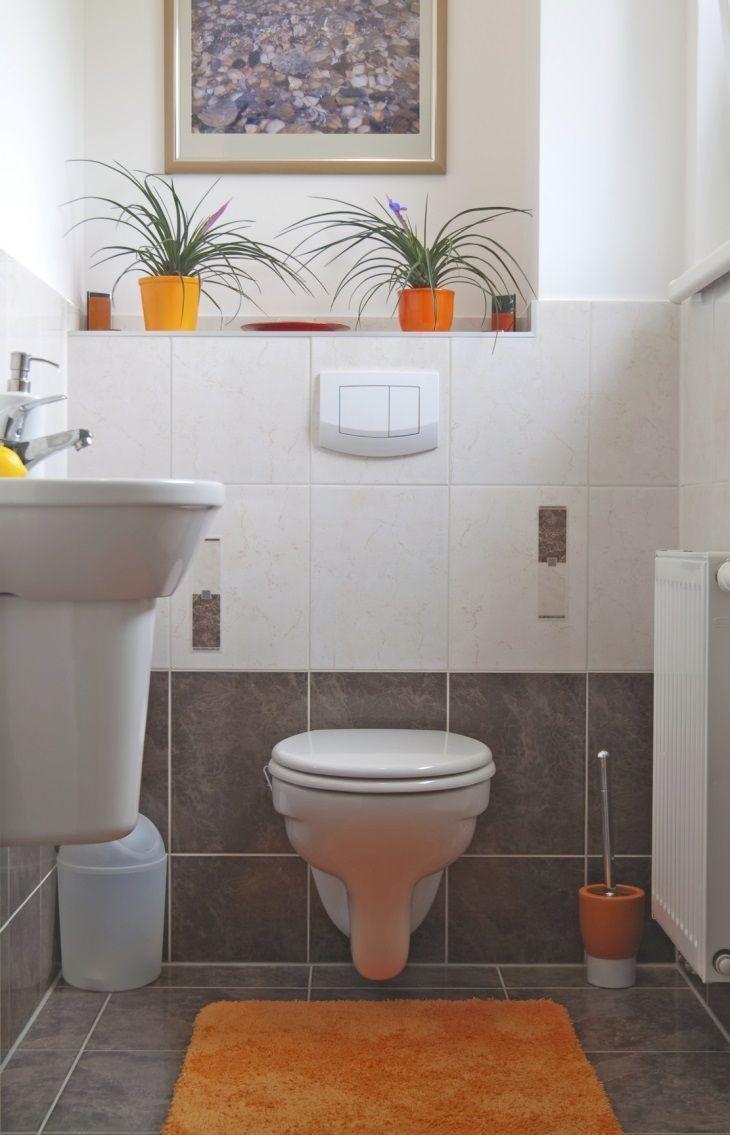
43. a different headboard with bamboo
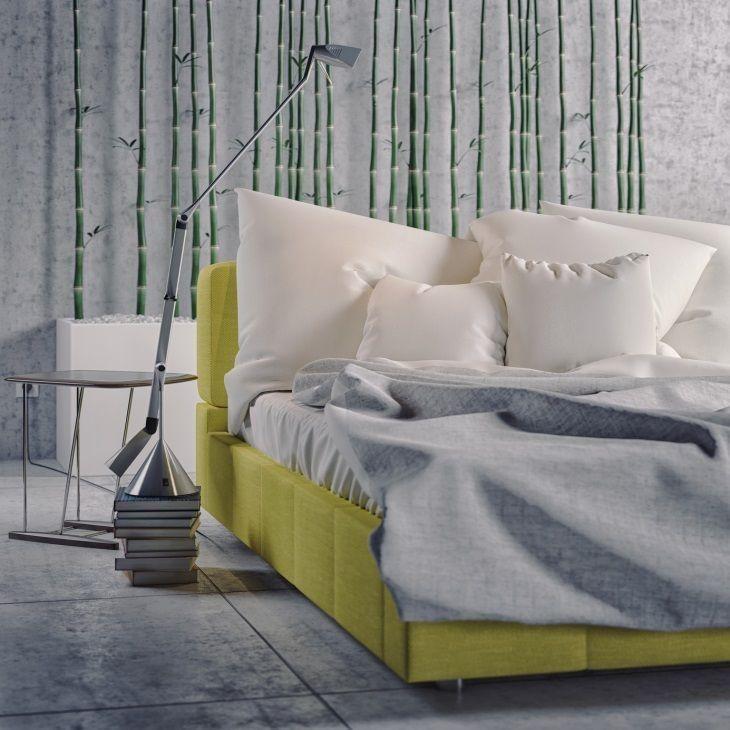
44. a plant in the corner and the environment becomes more alive
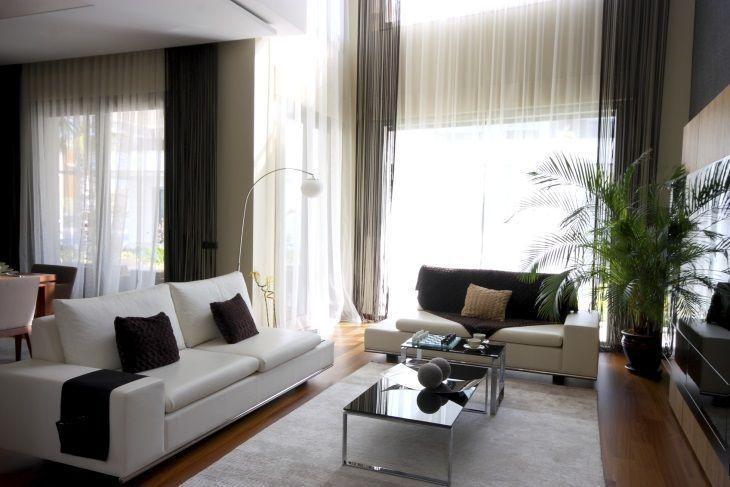
45. small details
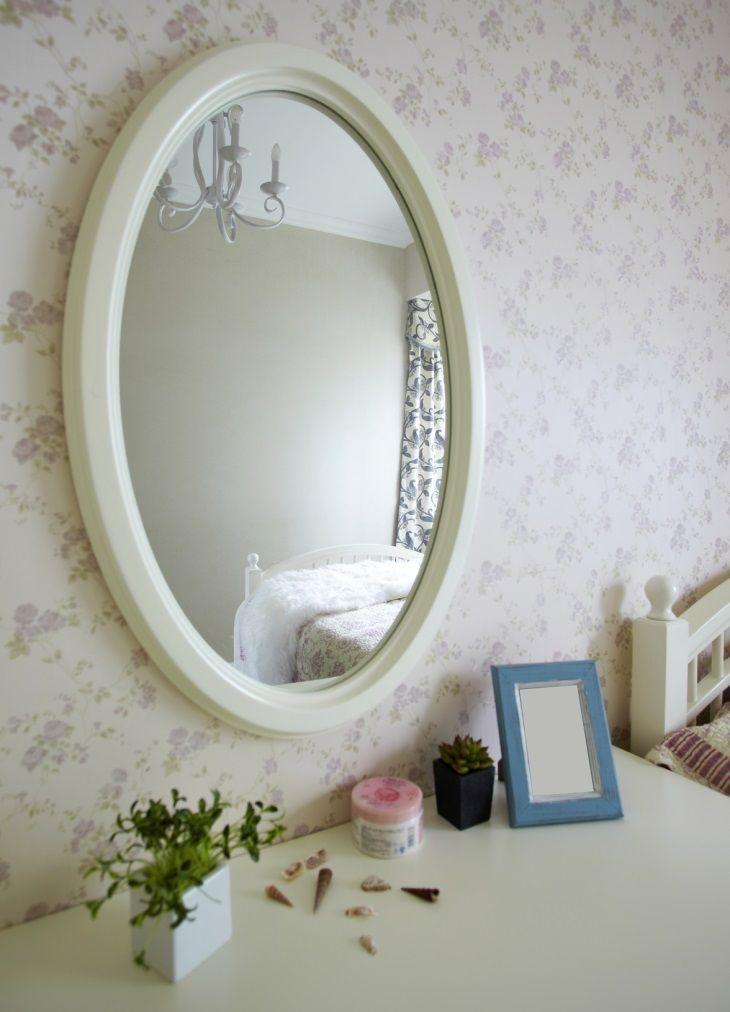
46. bamboo in bedroom decoration: a real luxury
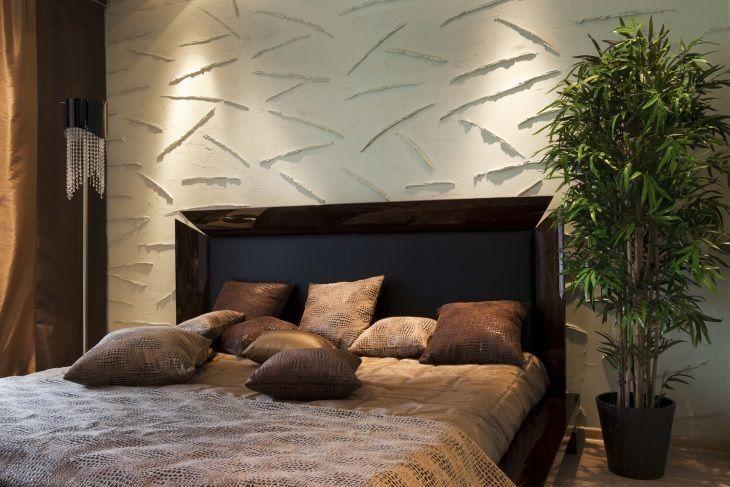
47. cozy environment to receive friends
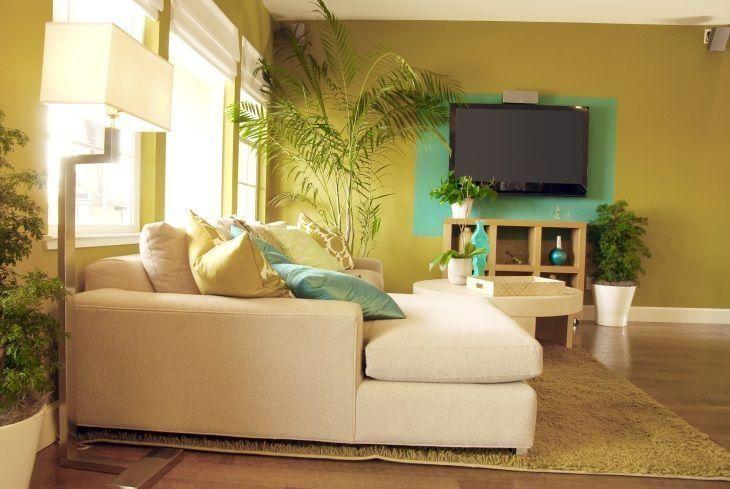
48. a passionate kitchen
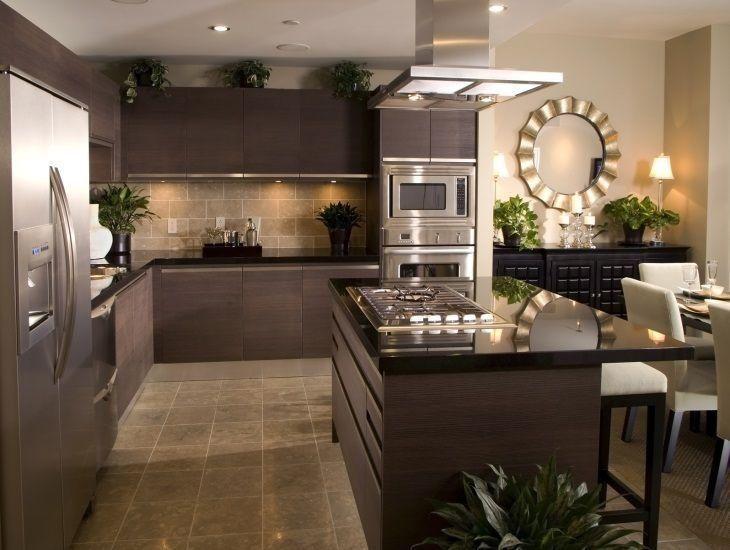
49. elegant decoration of the hall with ornamental plants
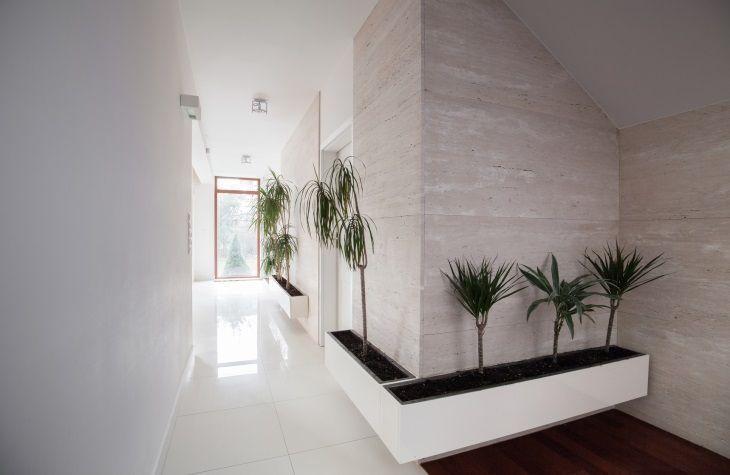
50. plants in the bathroom enrich the decoration
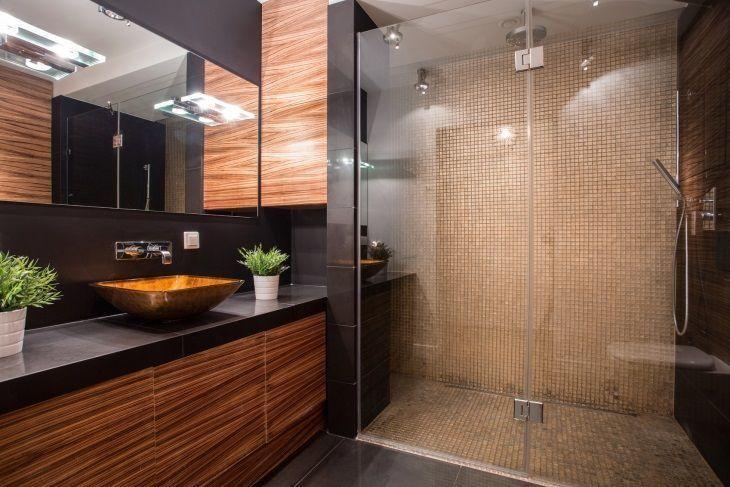
51. any corner can be used
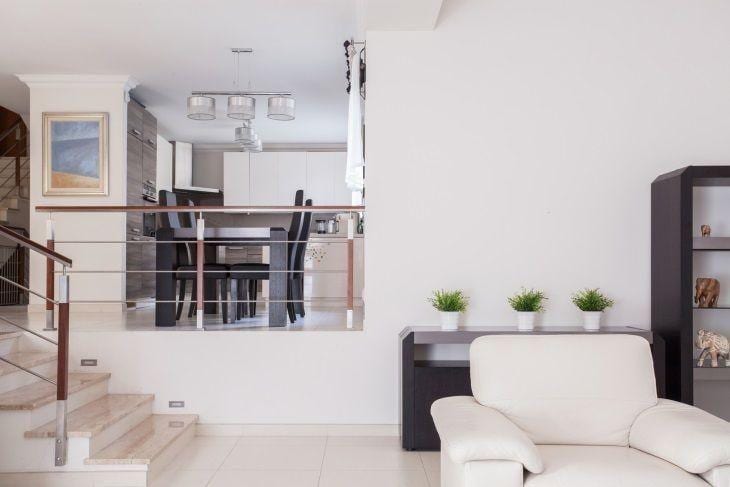
52. luxurious ambience with green touches of plants
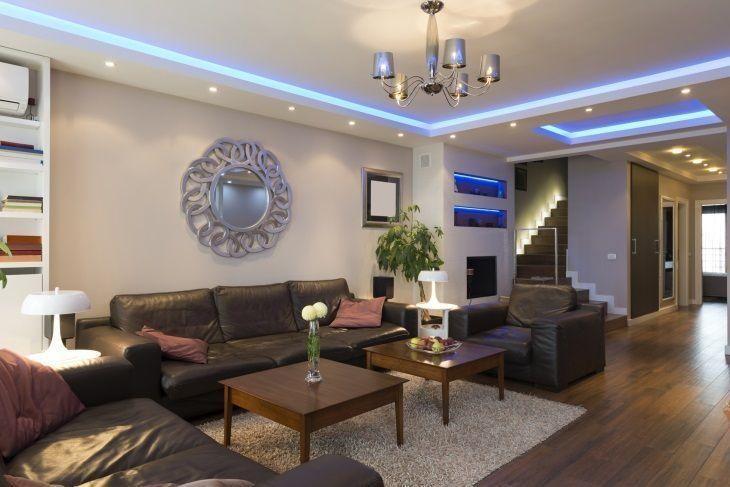
53 - Open spaces receive the charm of ornamental plants
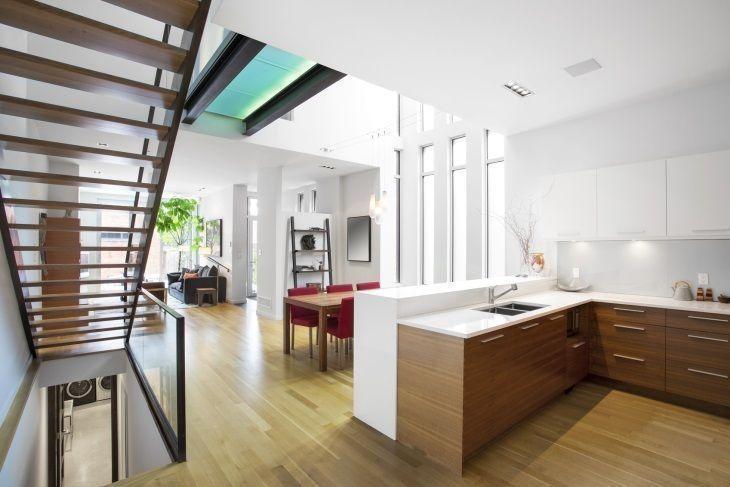
54. bet on tall plants next to windows
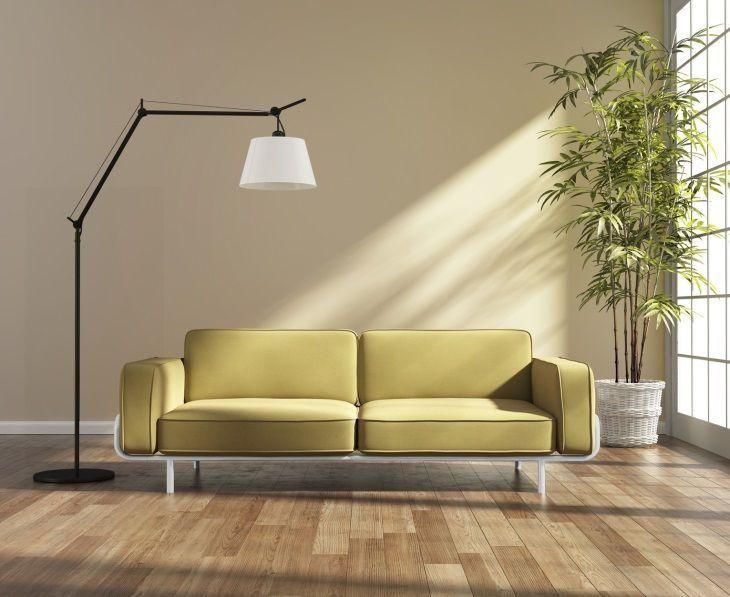
55. how about making a corner just for succulents?
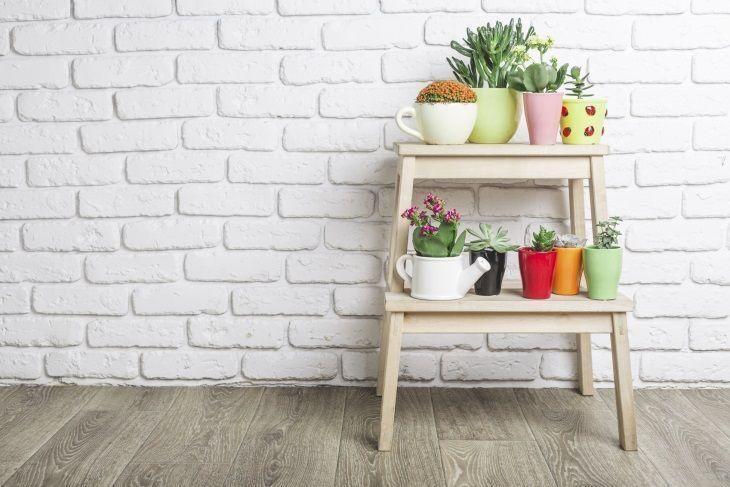
56. another example near the window
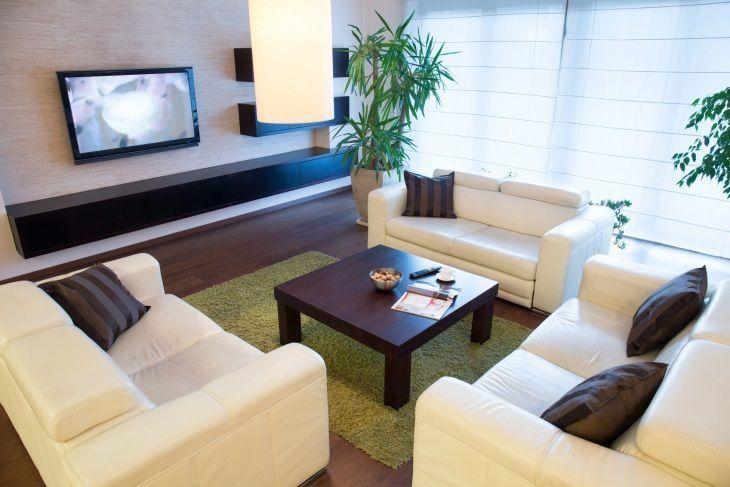
57. an even more beautiful balcony
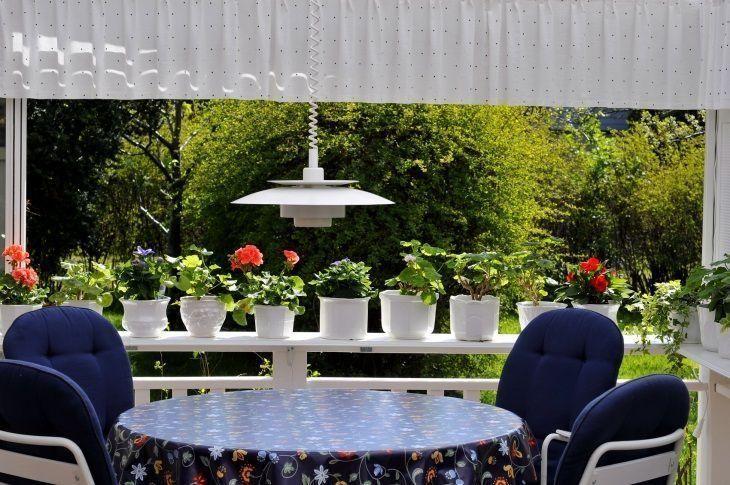
58. and, again, any corner is room for a plant
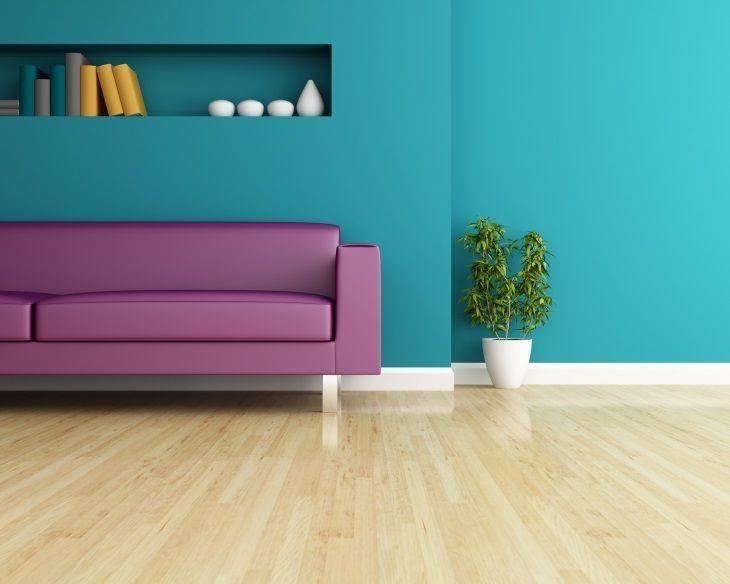
59. separated by a screen
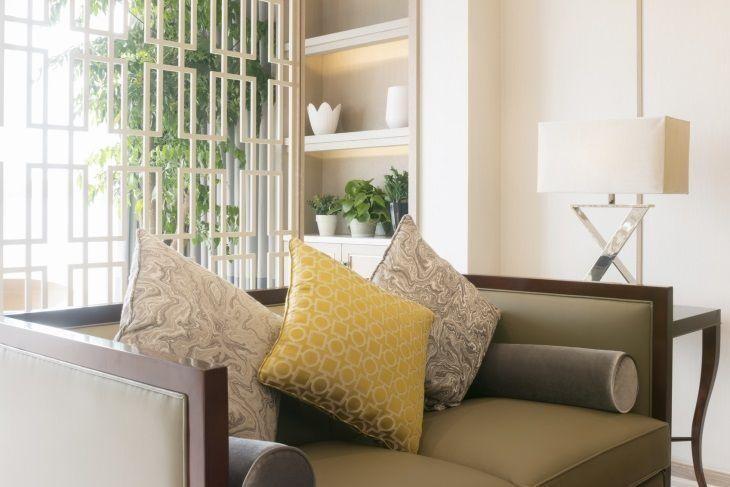
60 - Another room full of elegance

61. delicacy in the office

Whether large, reaching meters in height, exhaling perfume or not, having flowers or just imposing leaves, ornamental plants will certainly change the environment, bringing harmony, beauty, and contact with nature. Start growing them now! And if you don't have much knowledge about plants, see species that are easy to care for at home.


